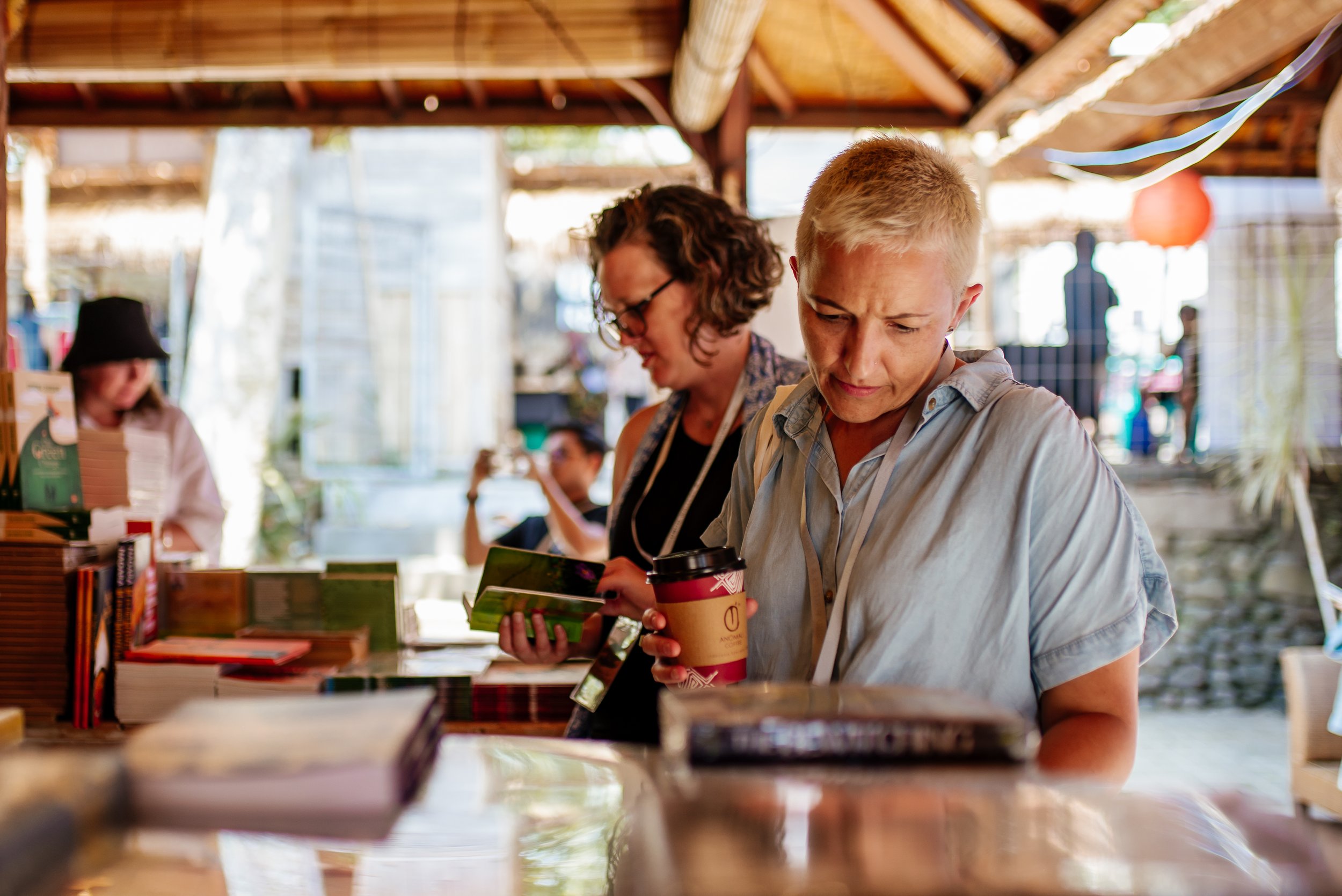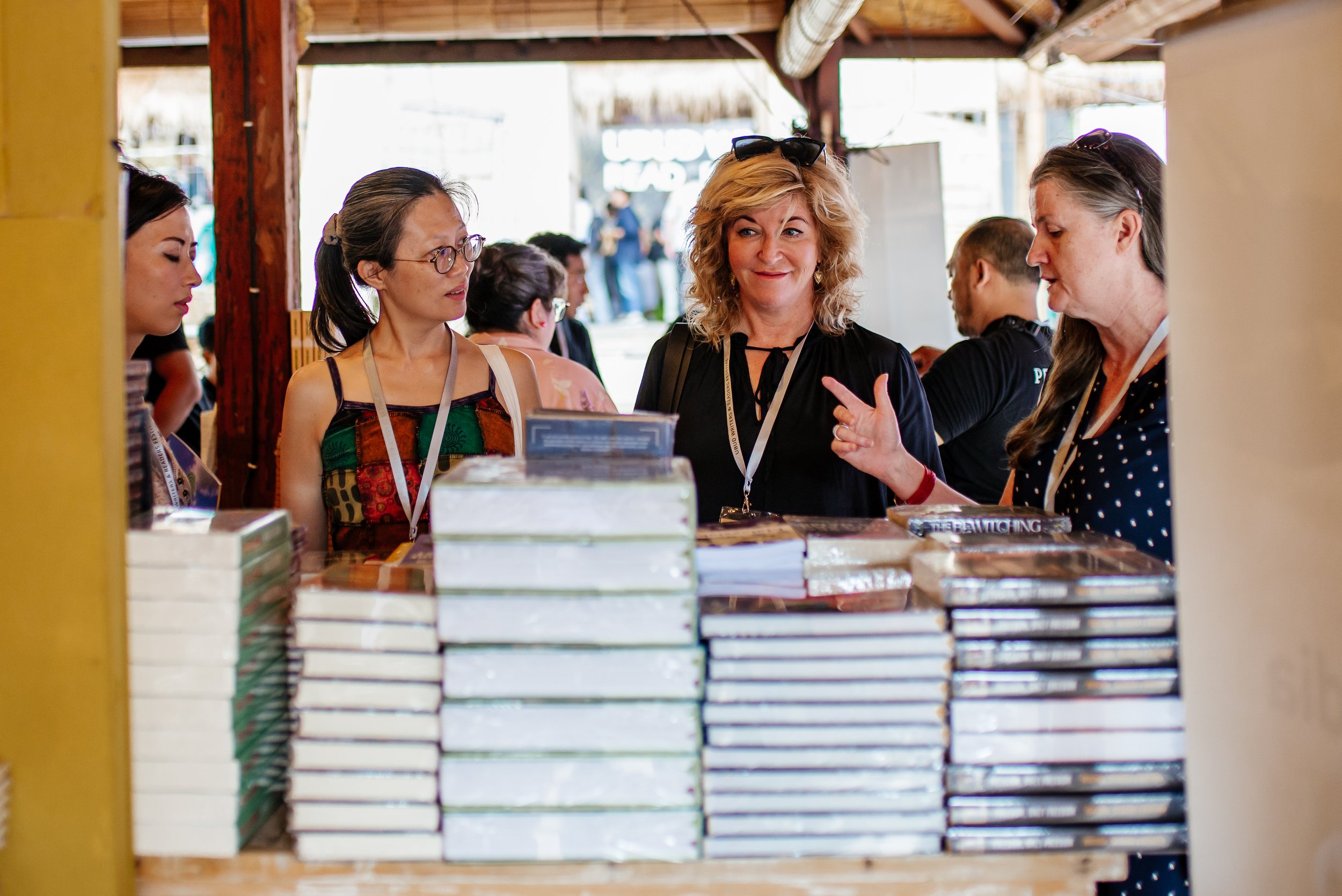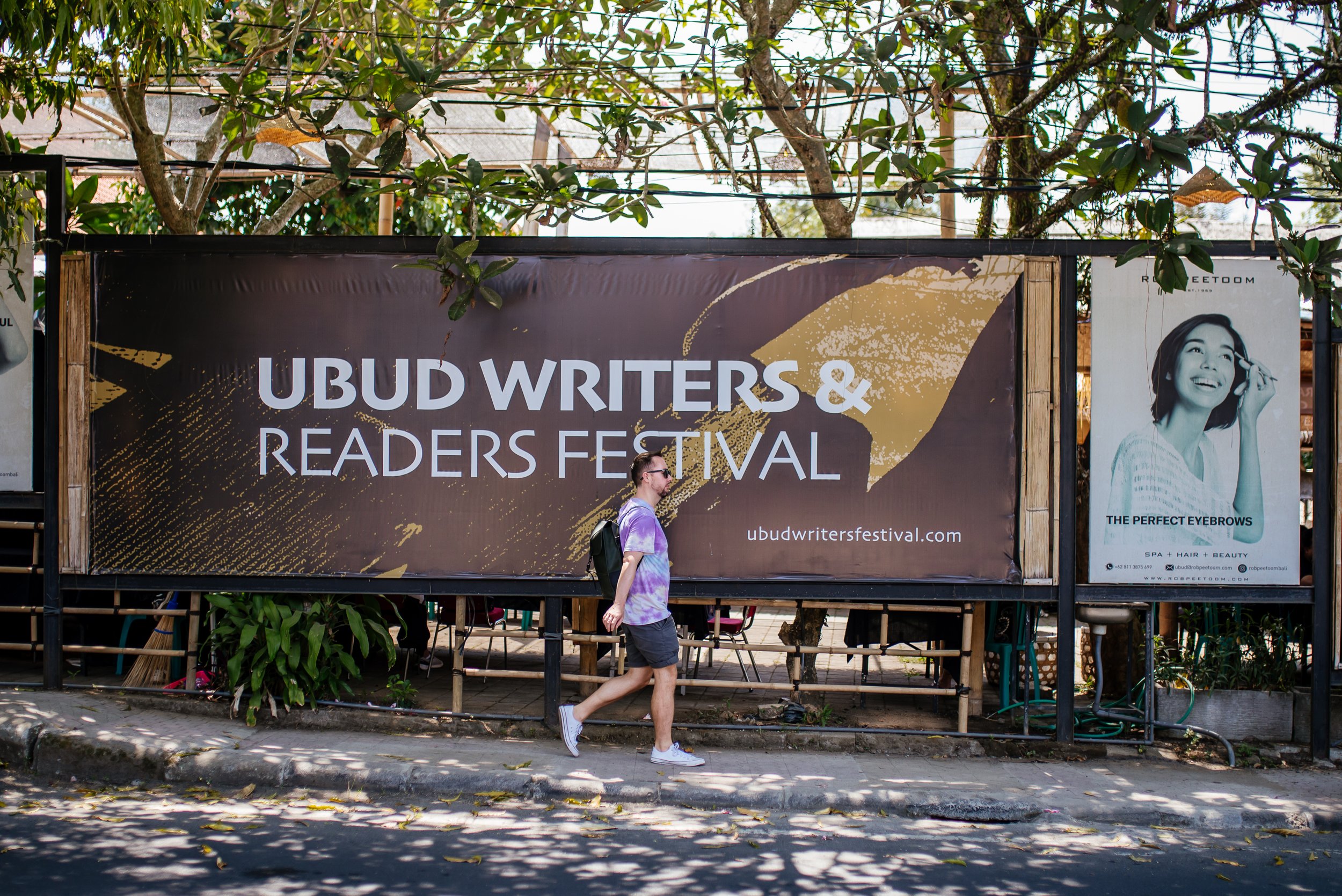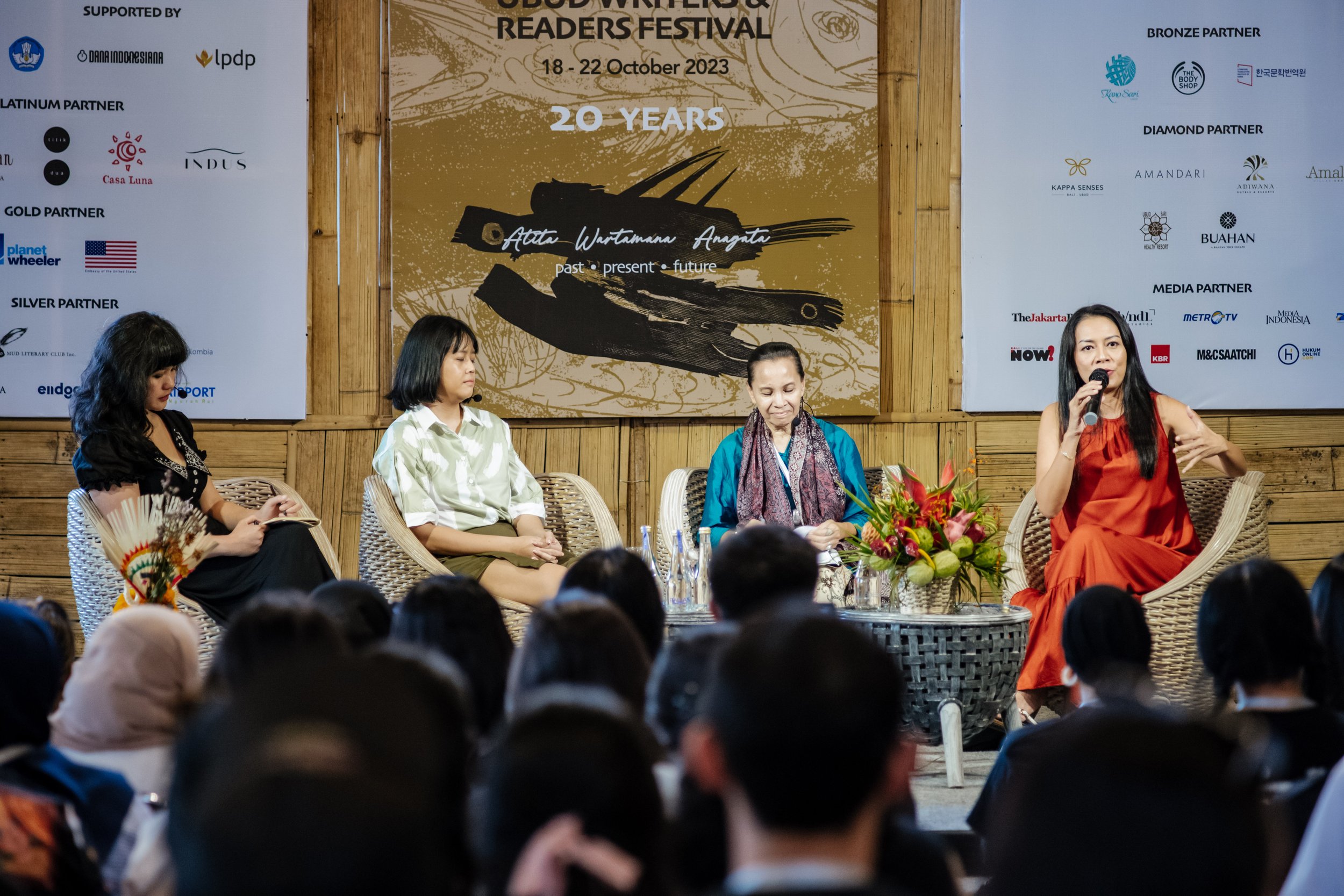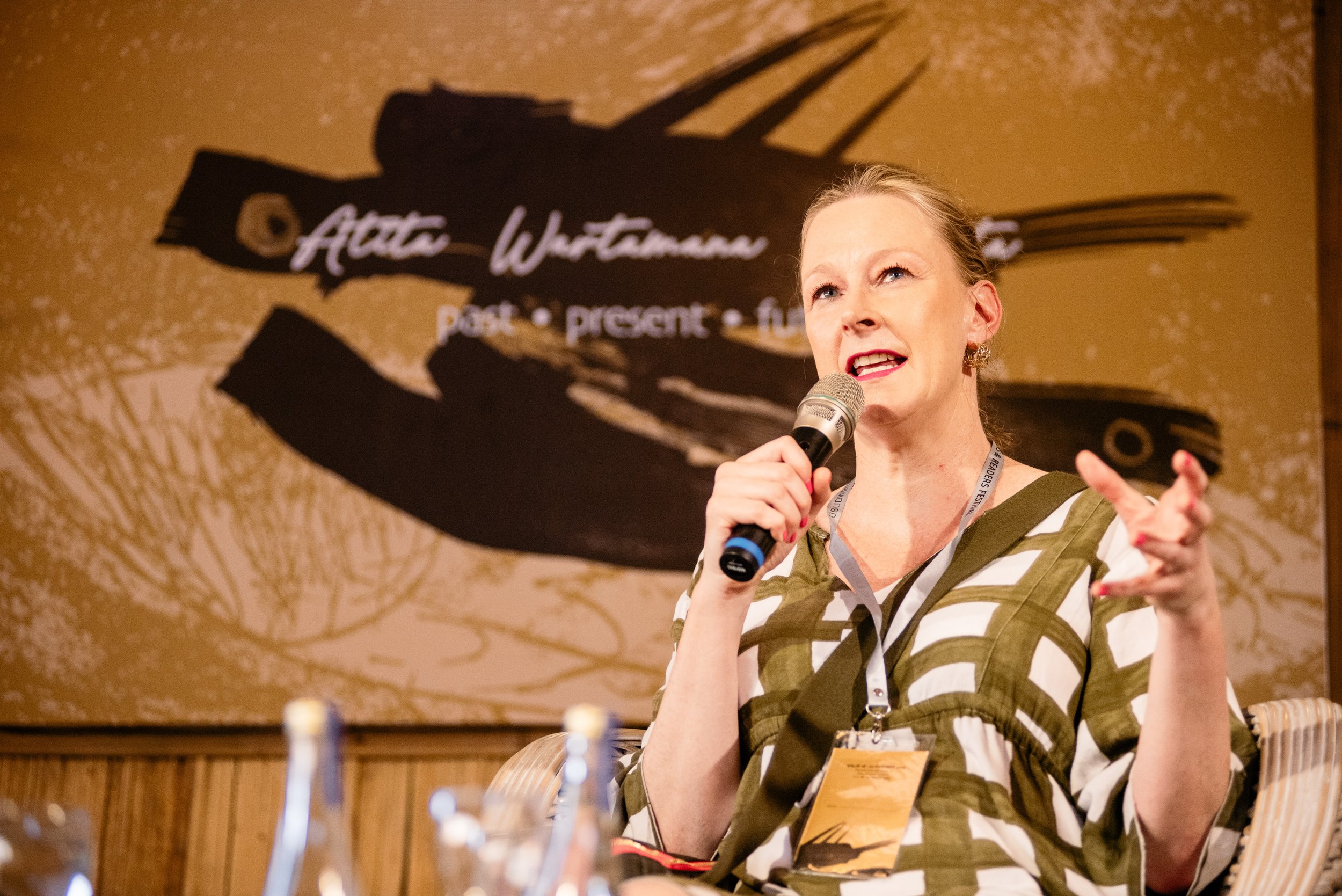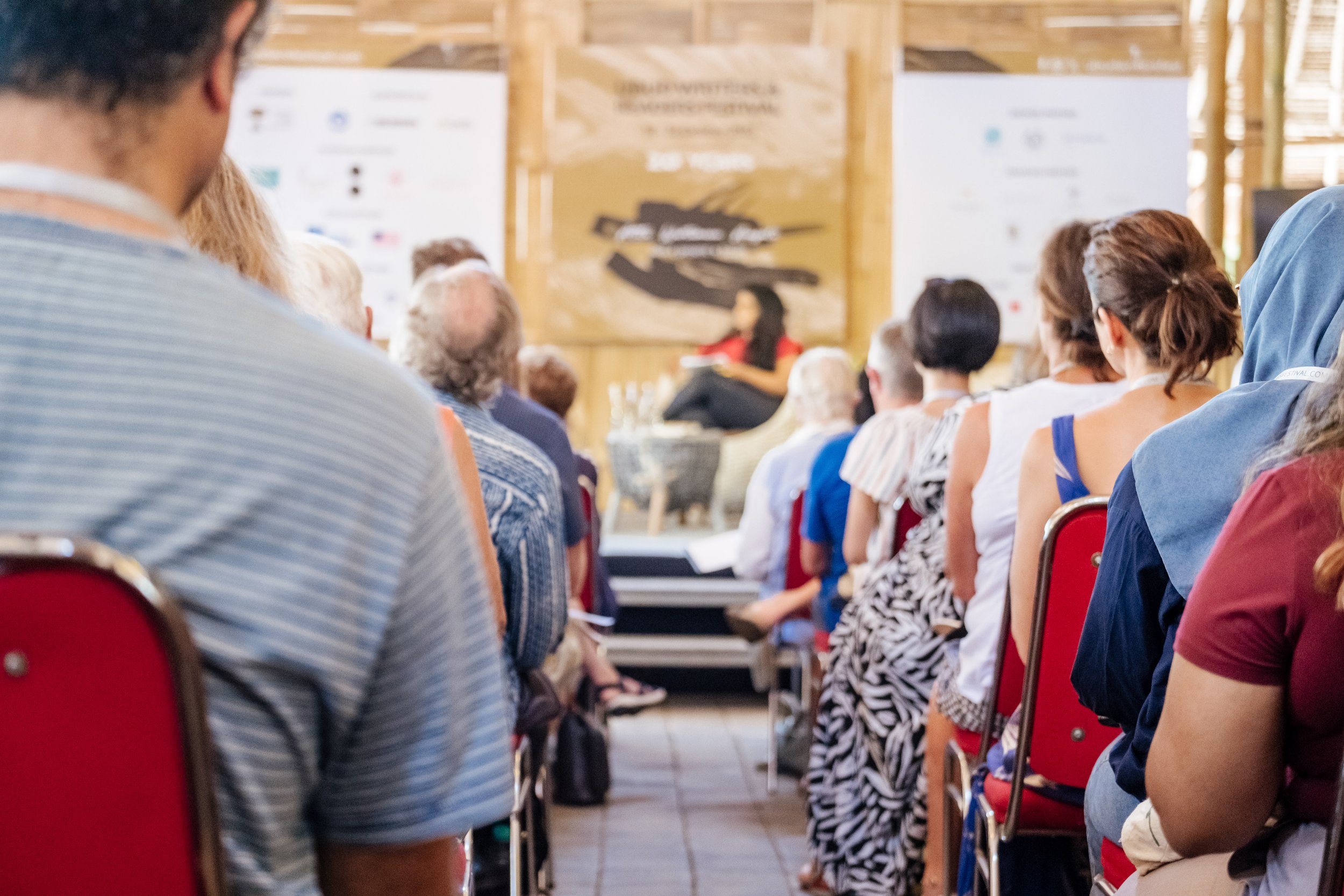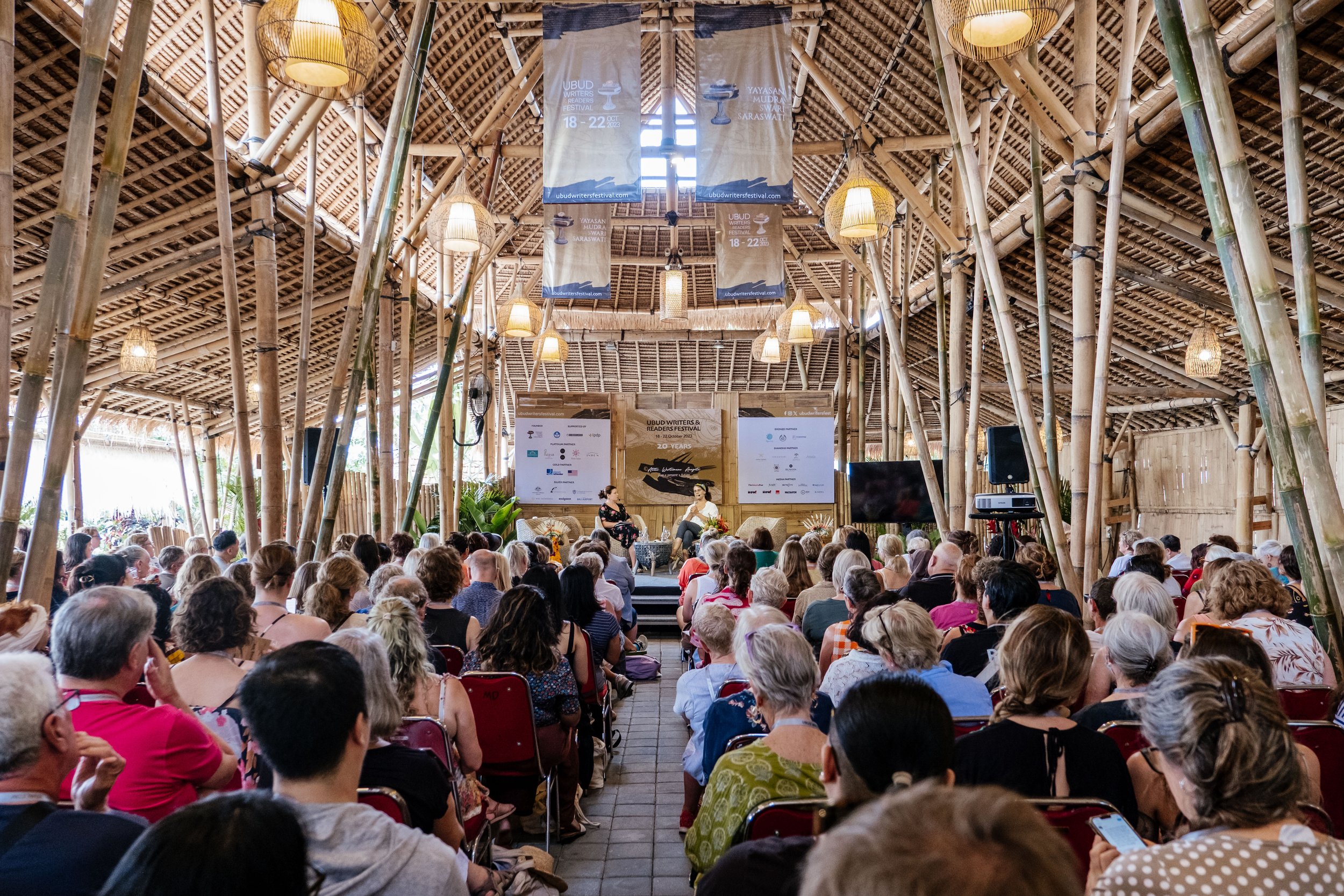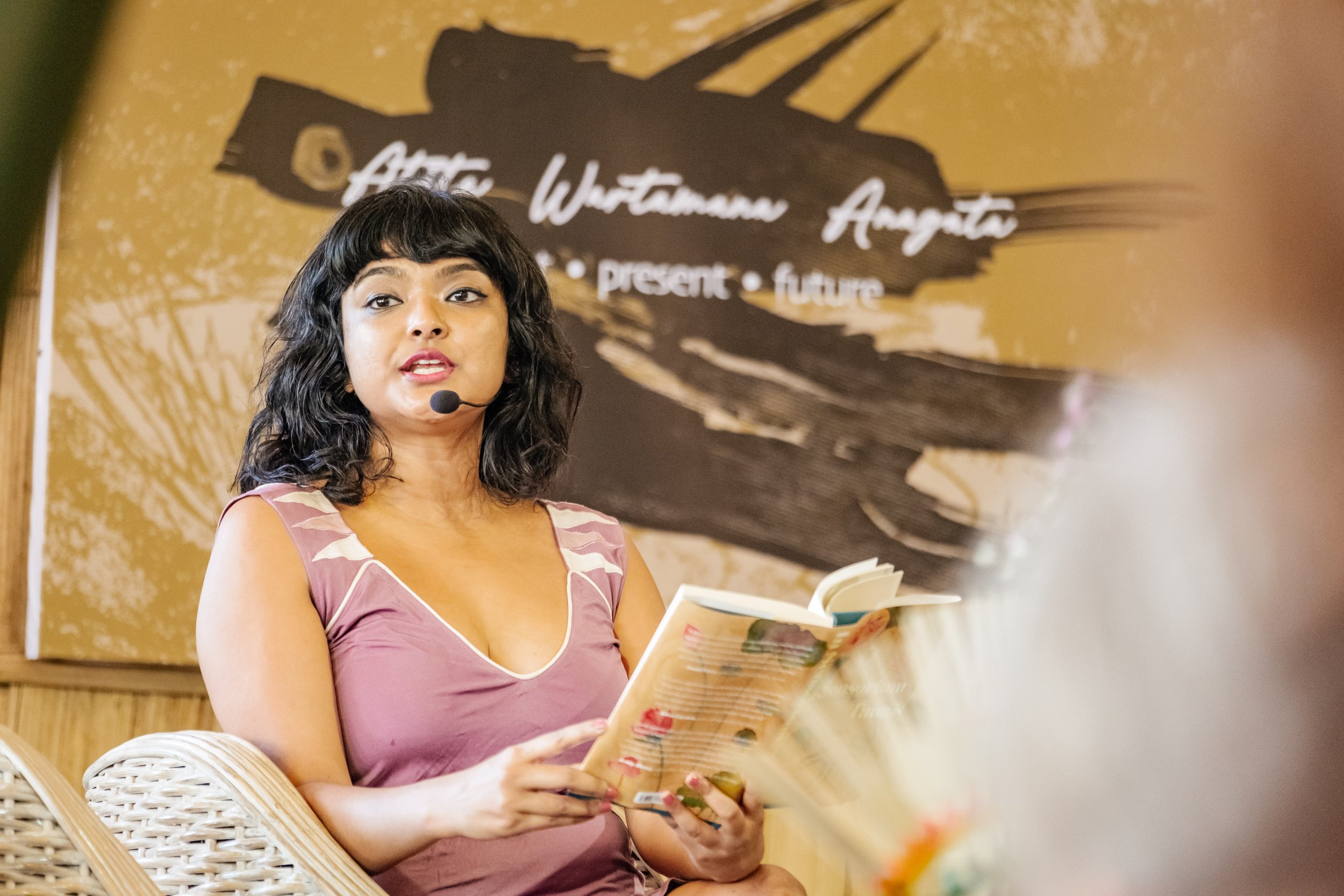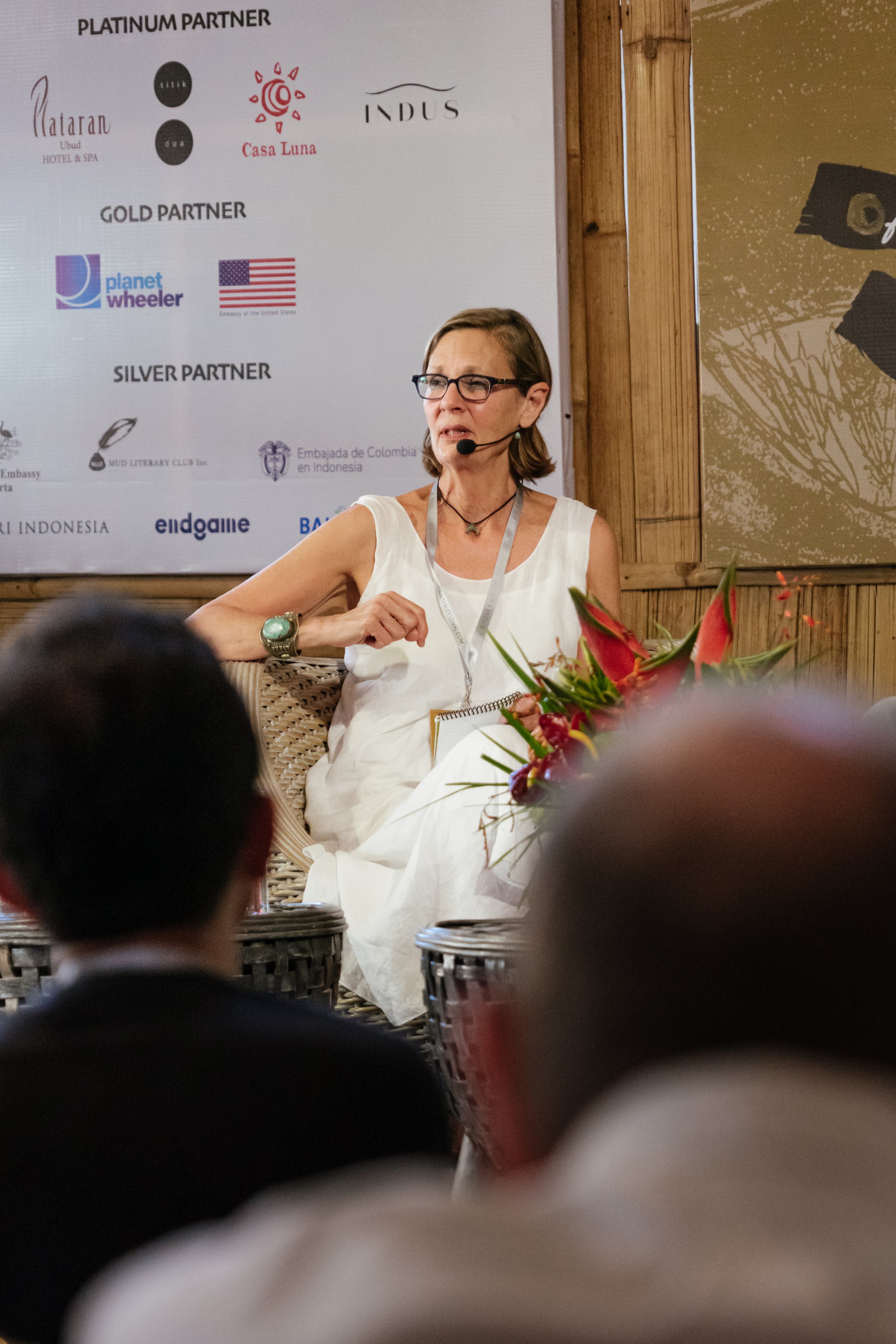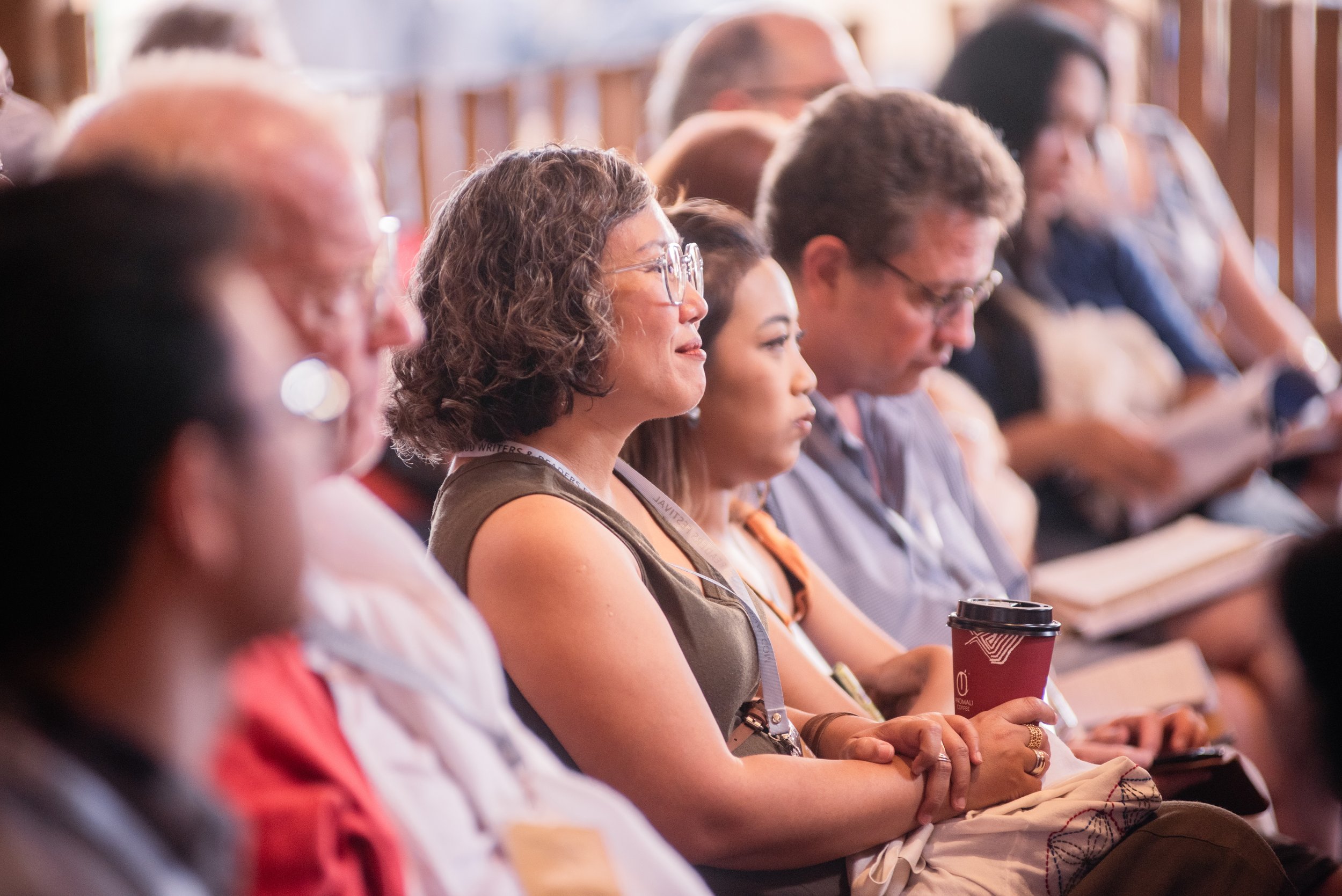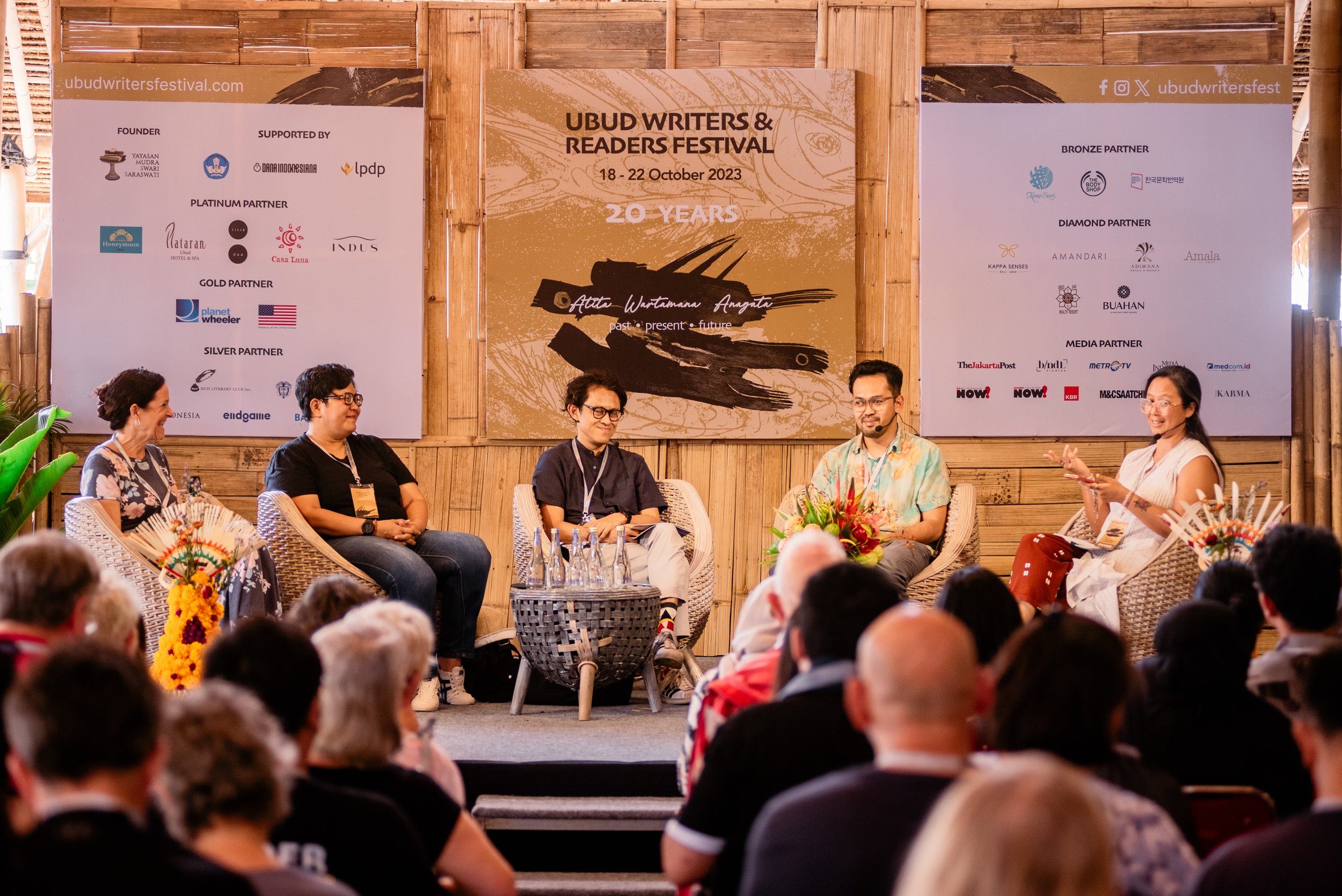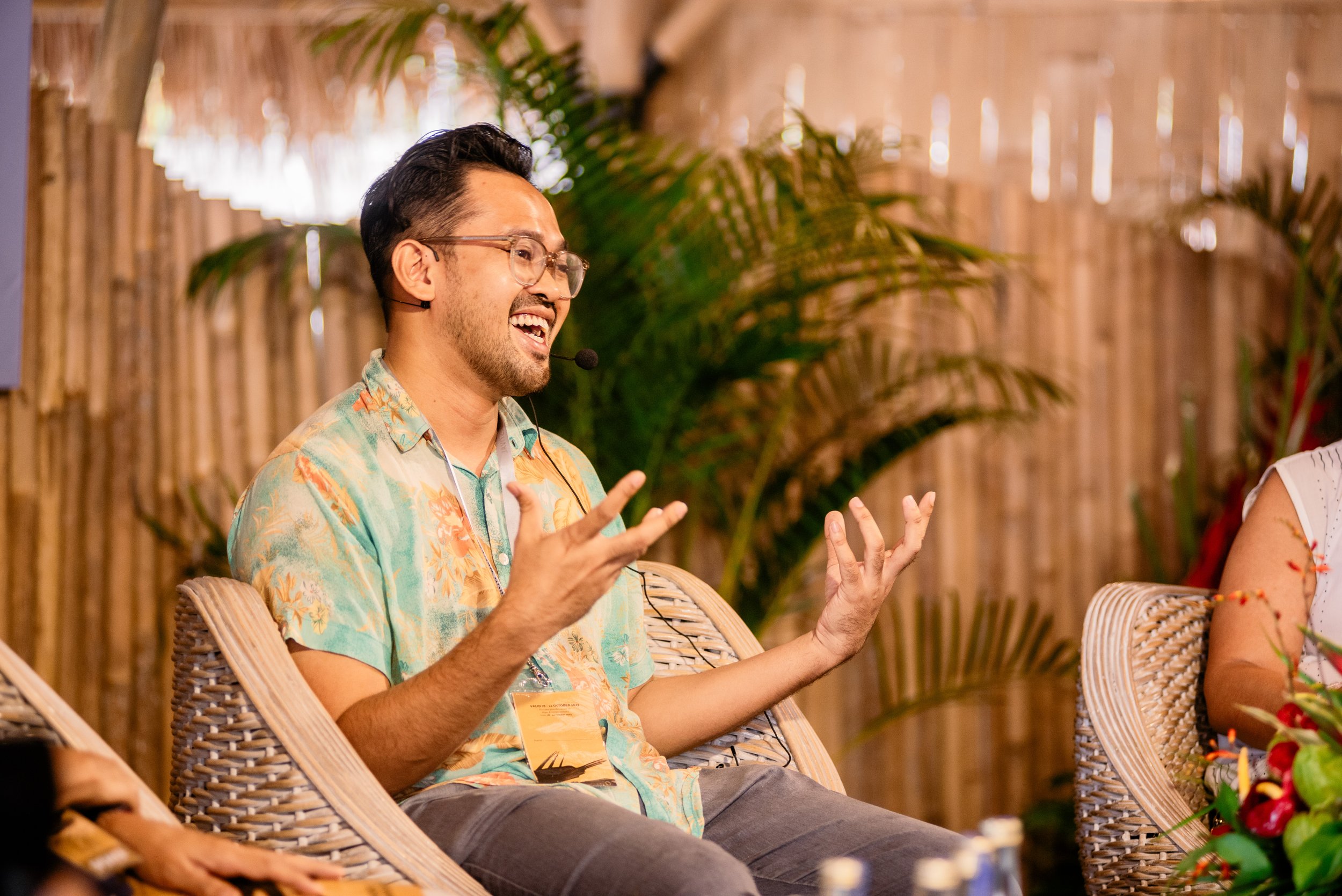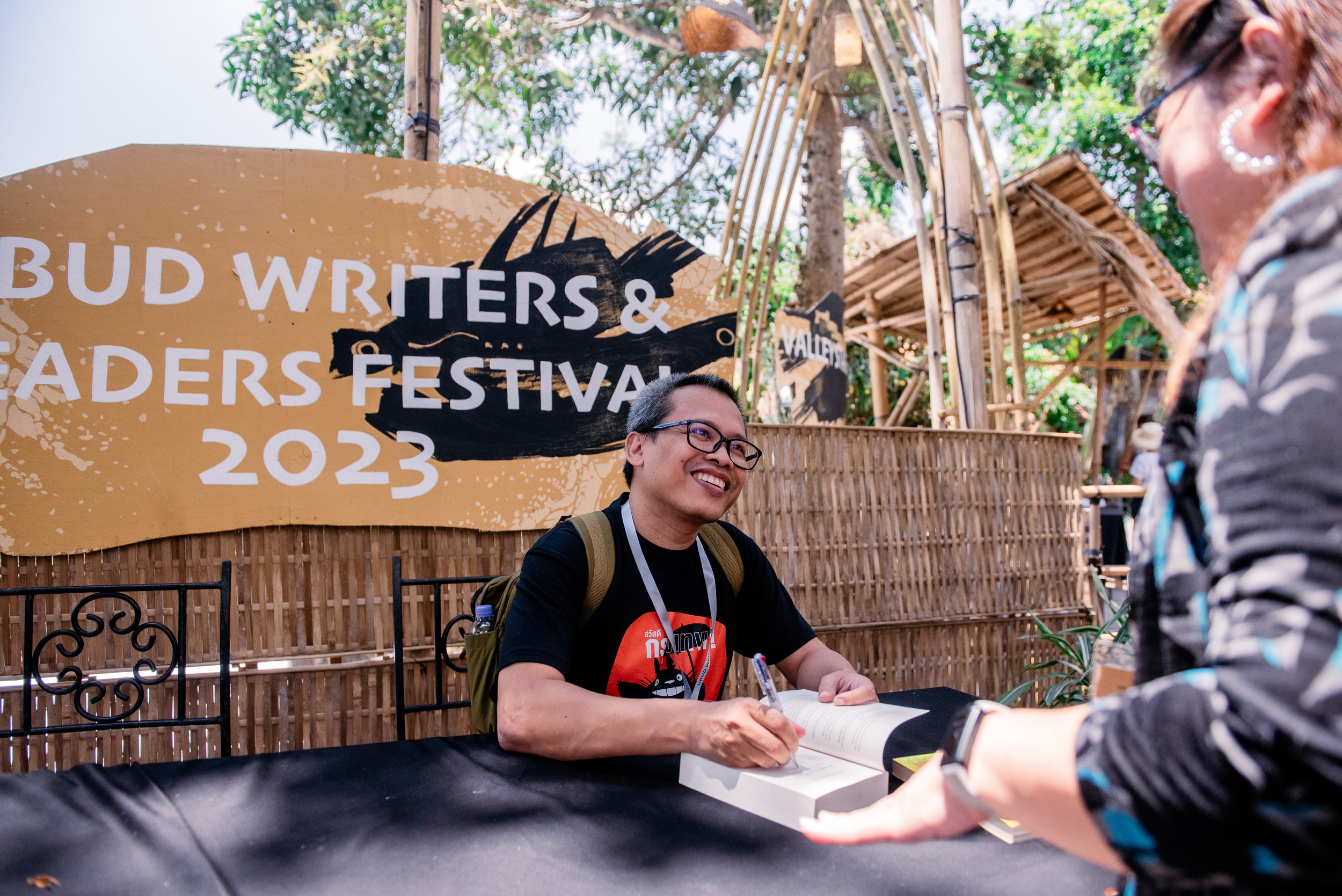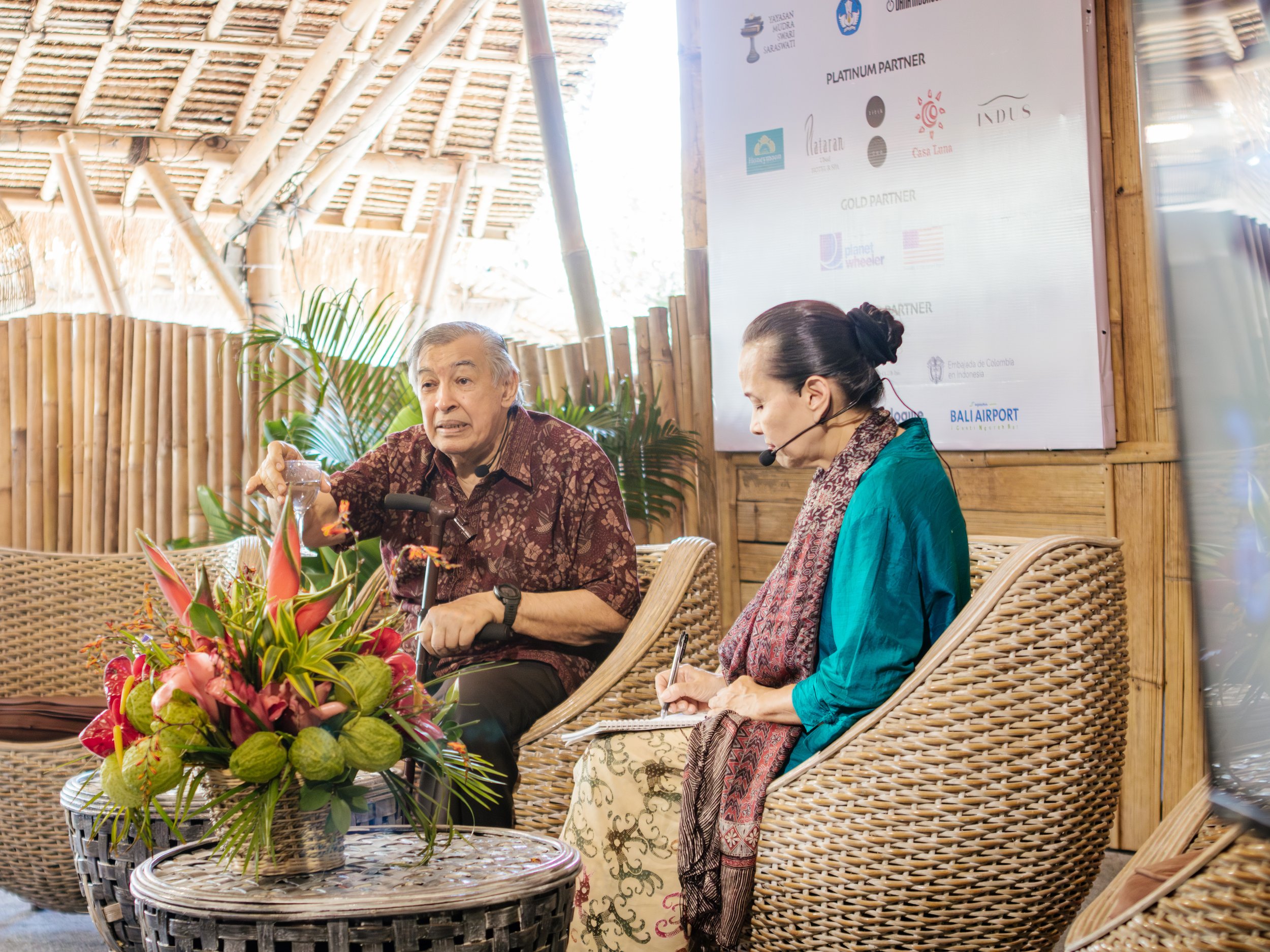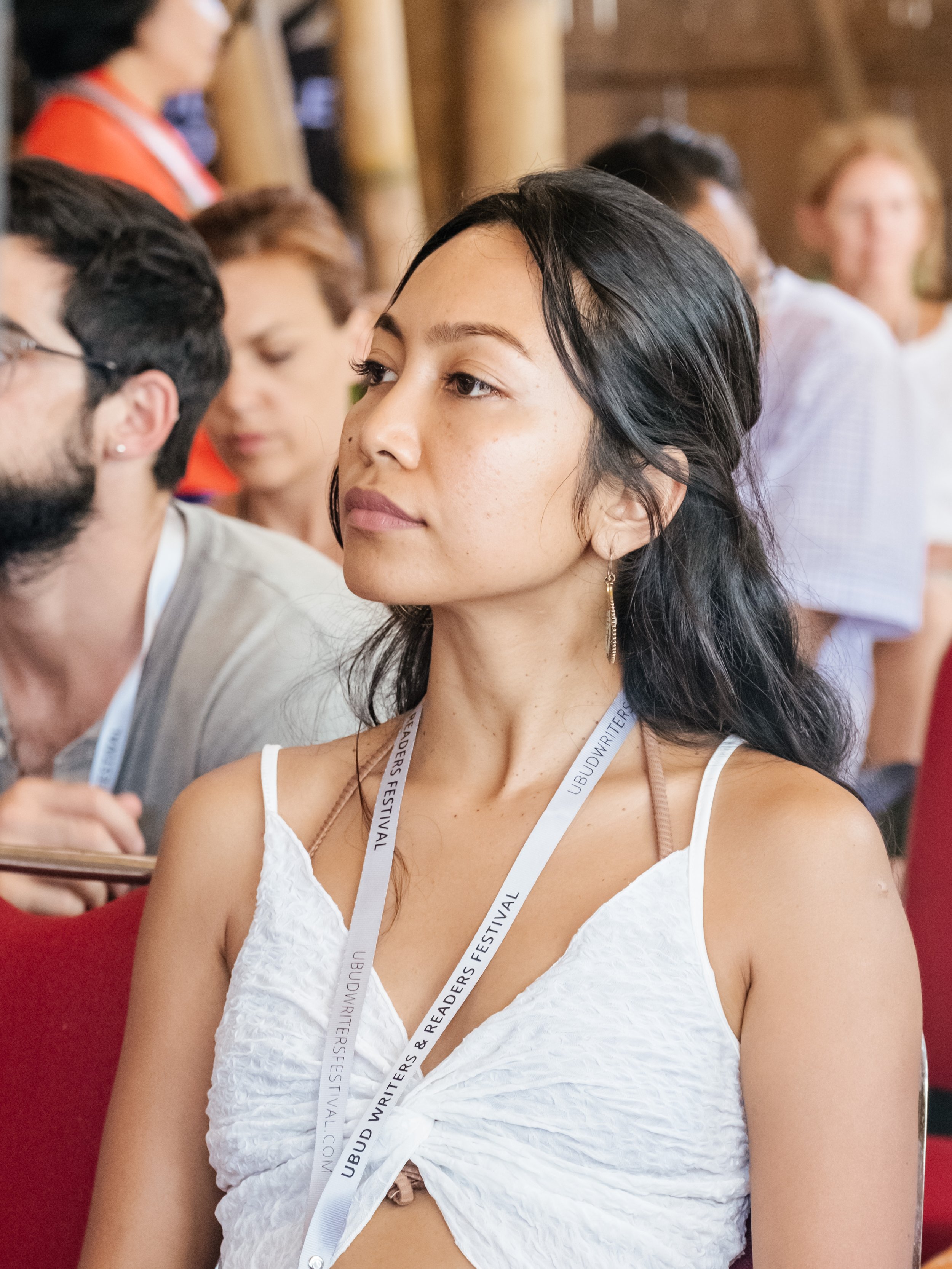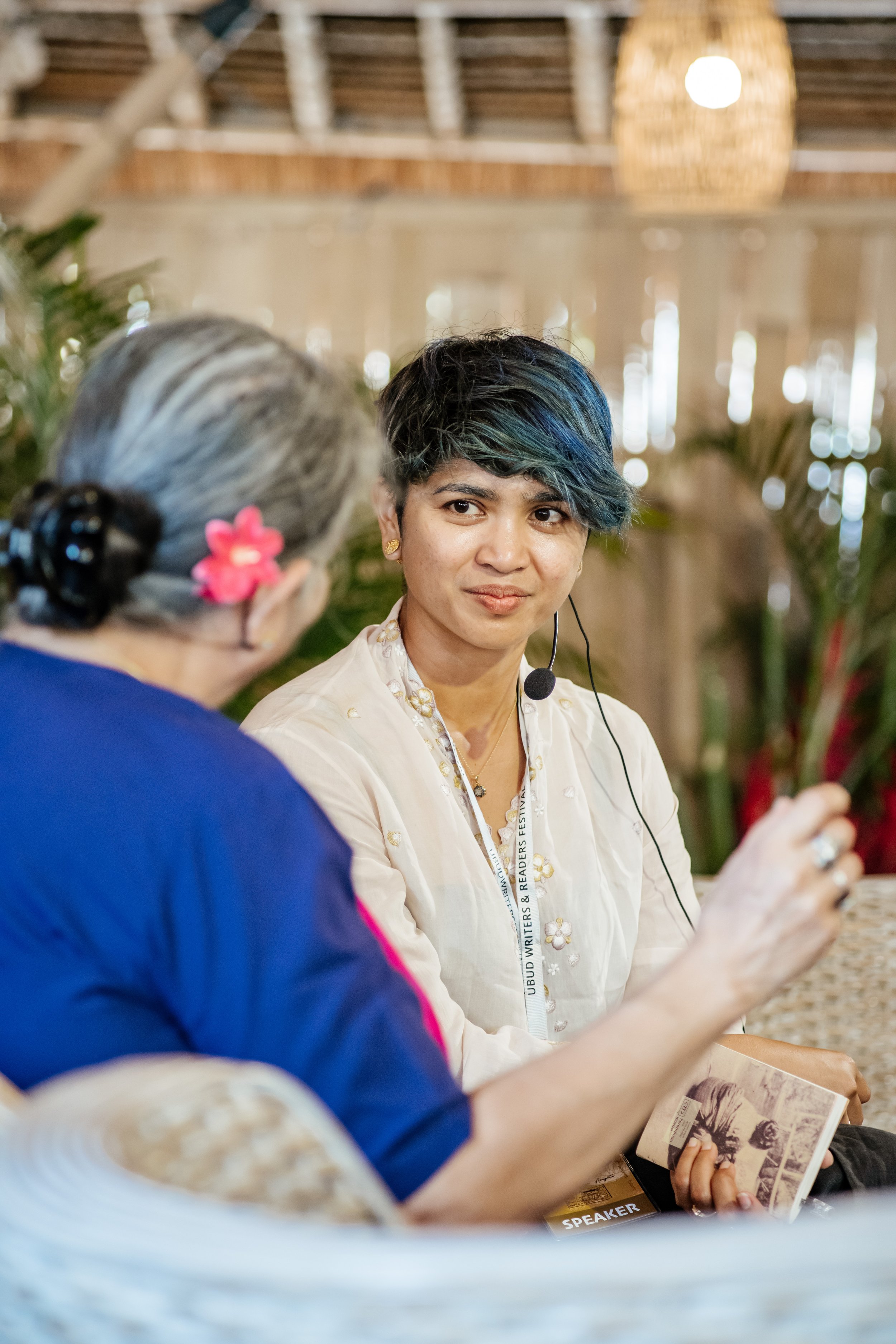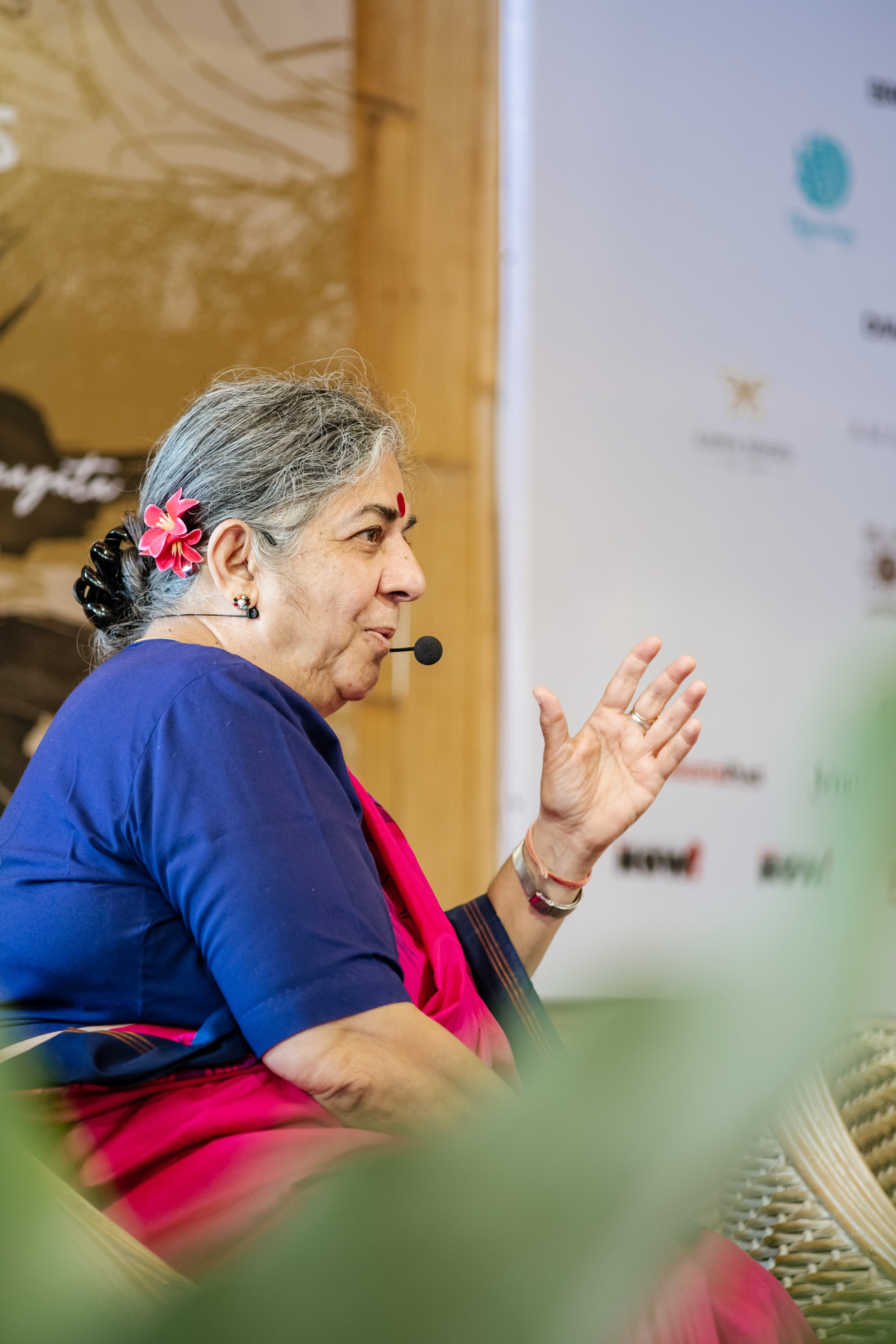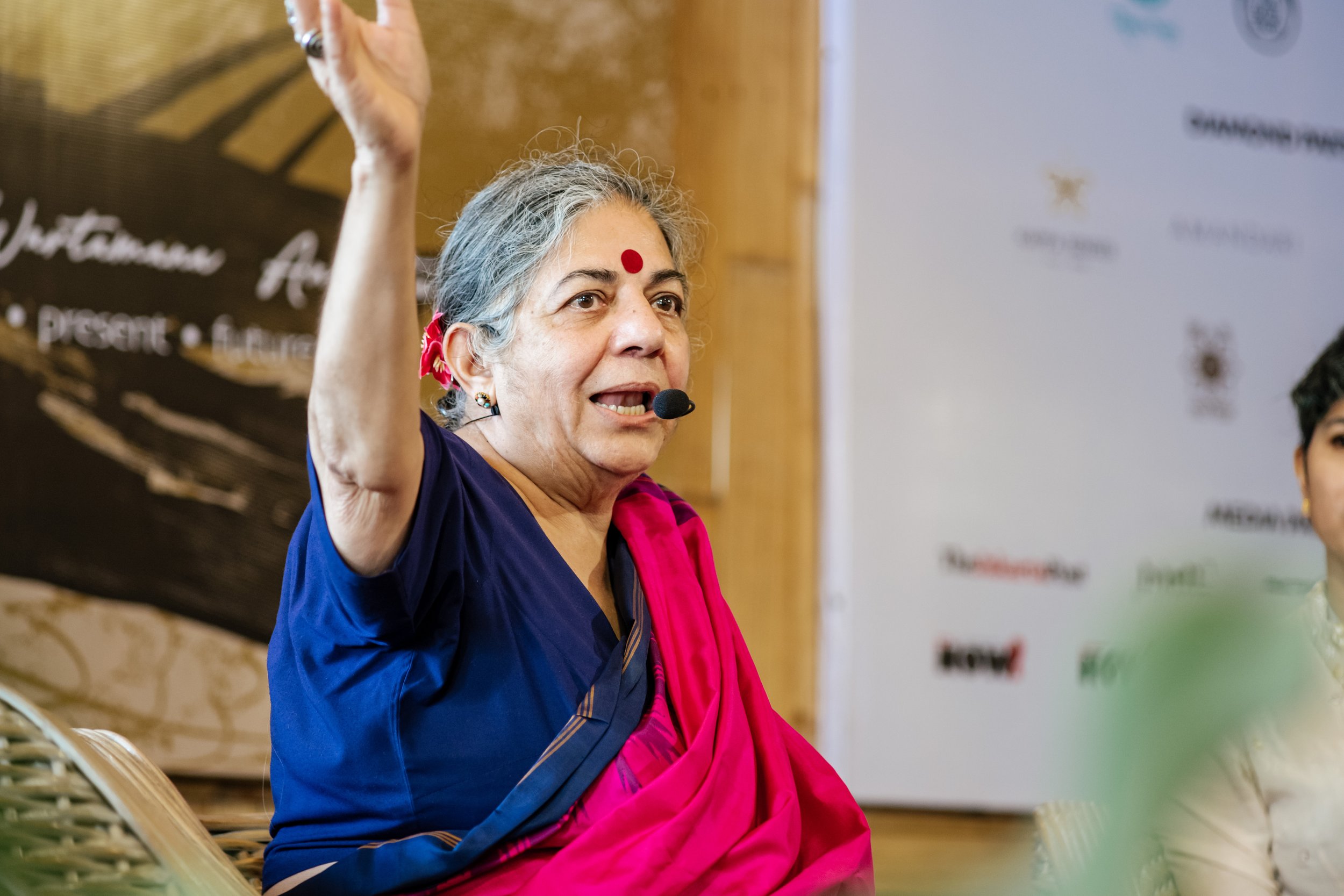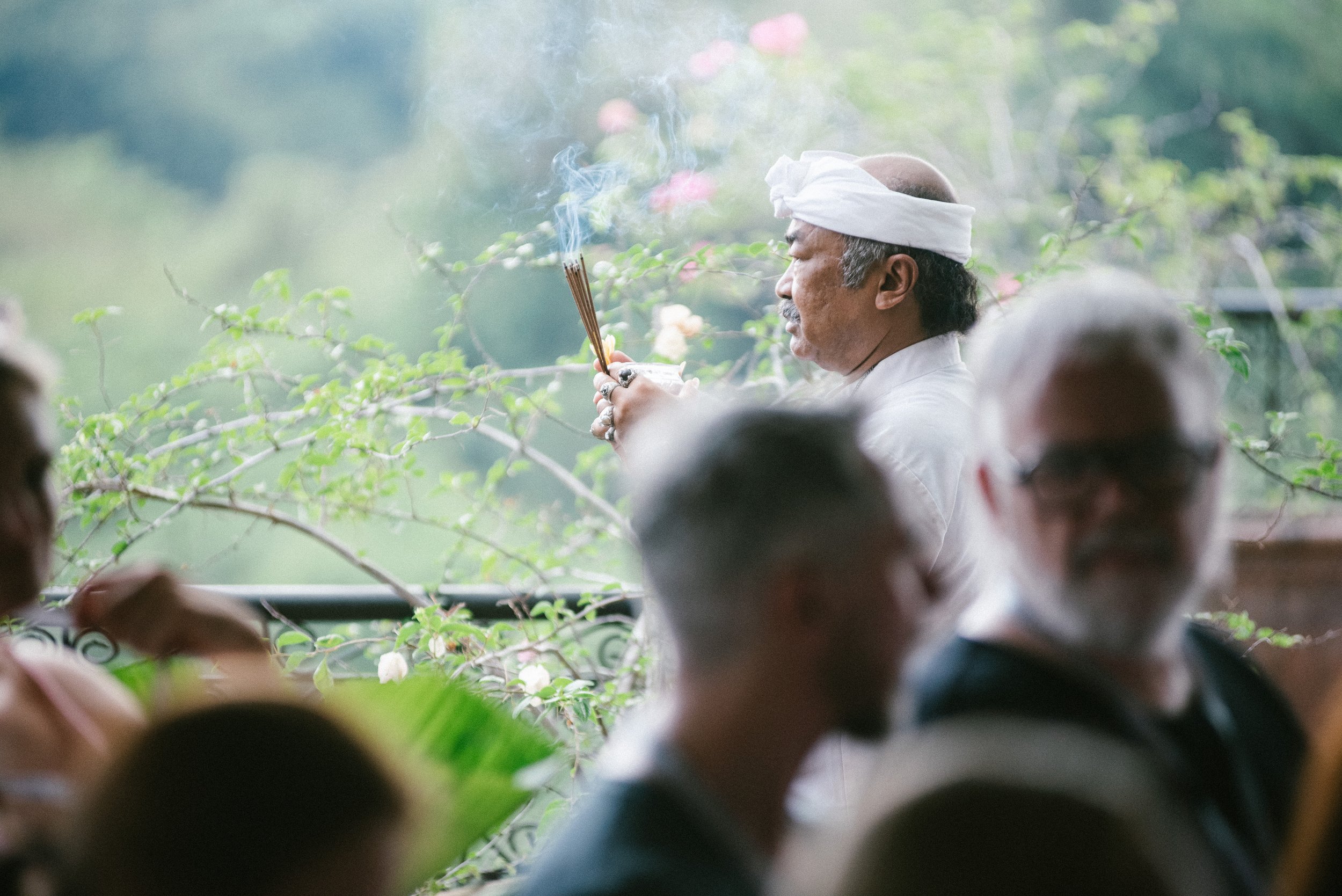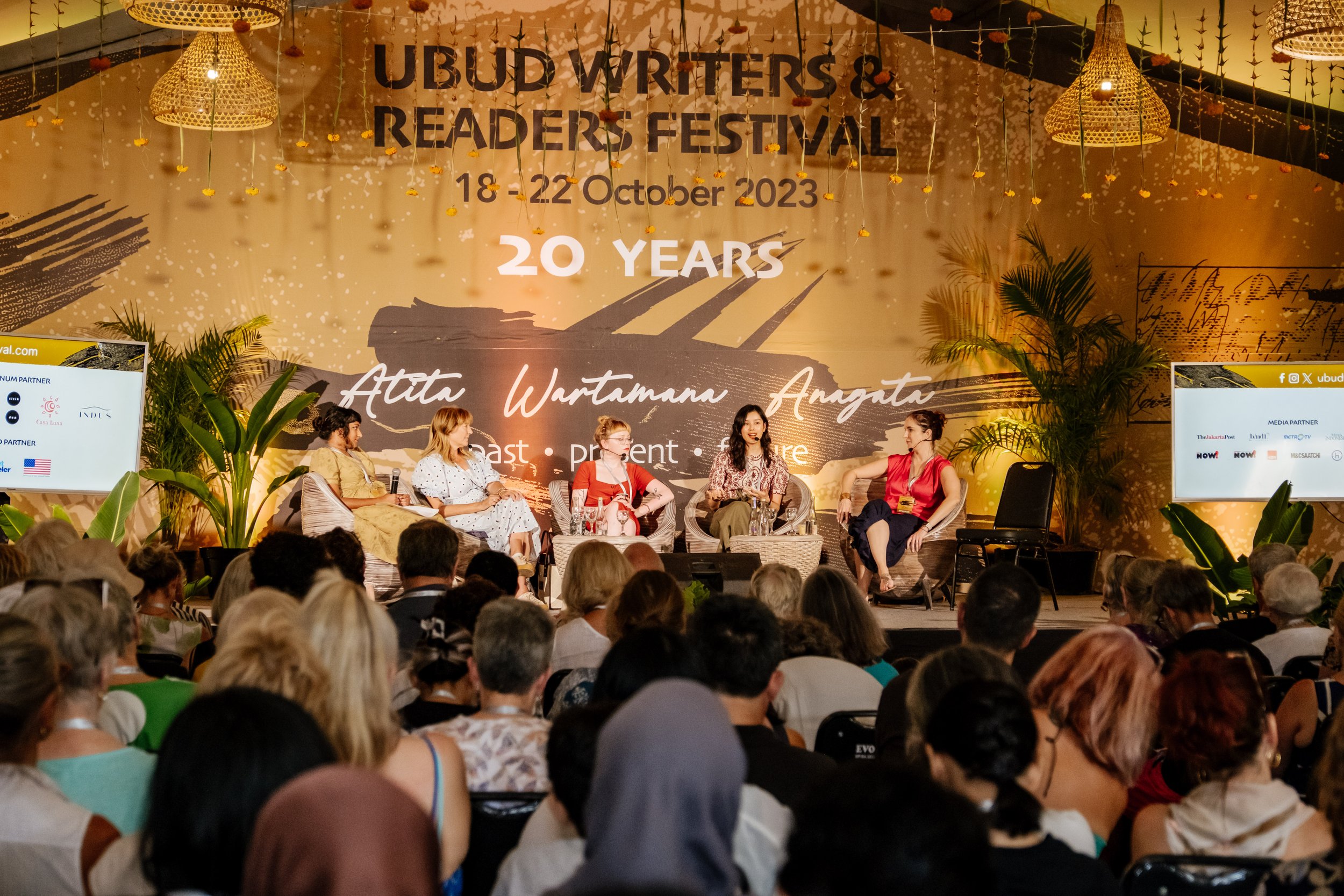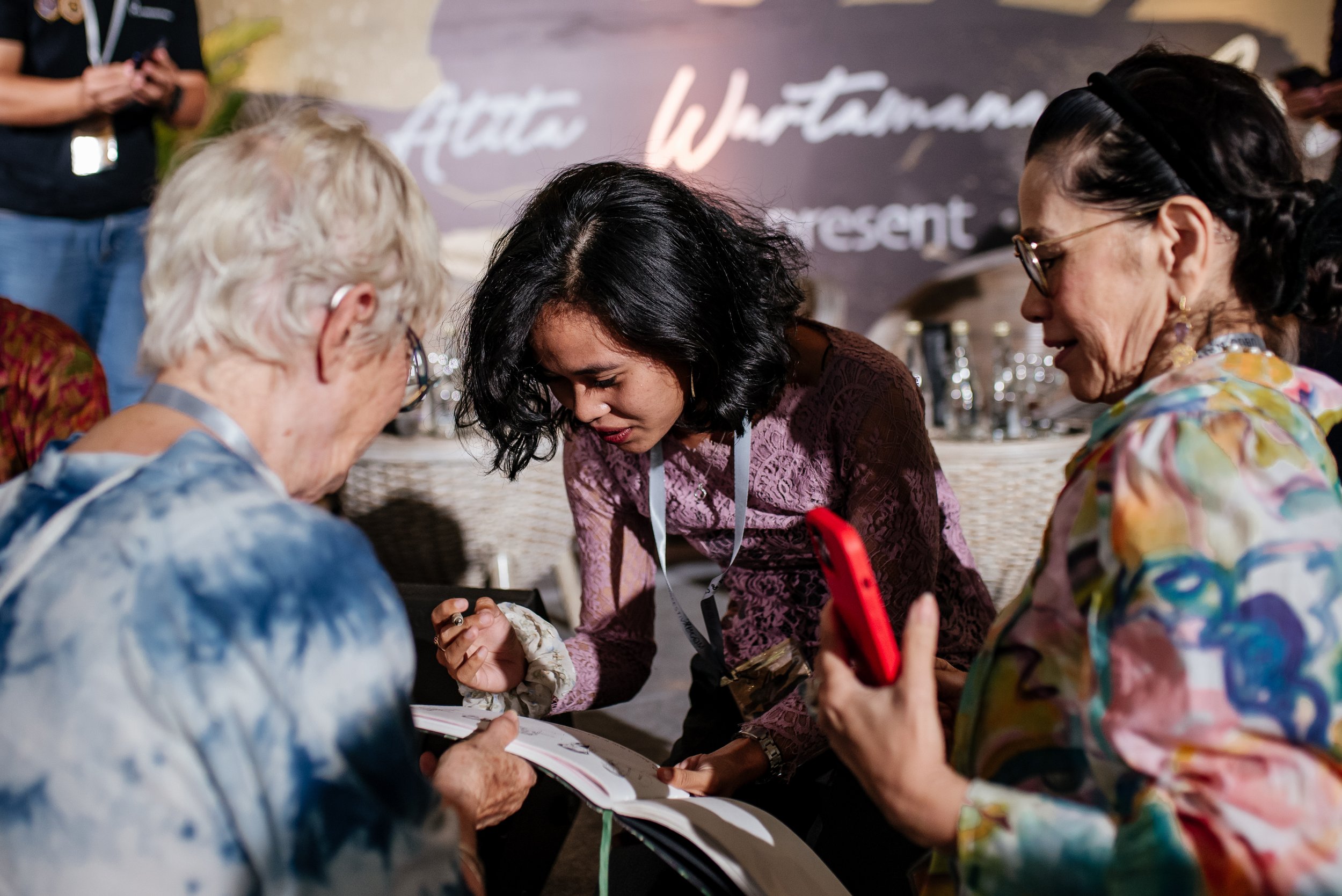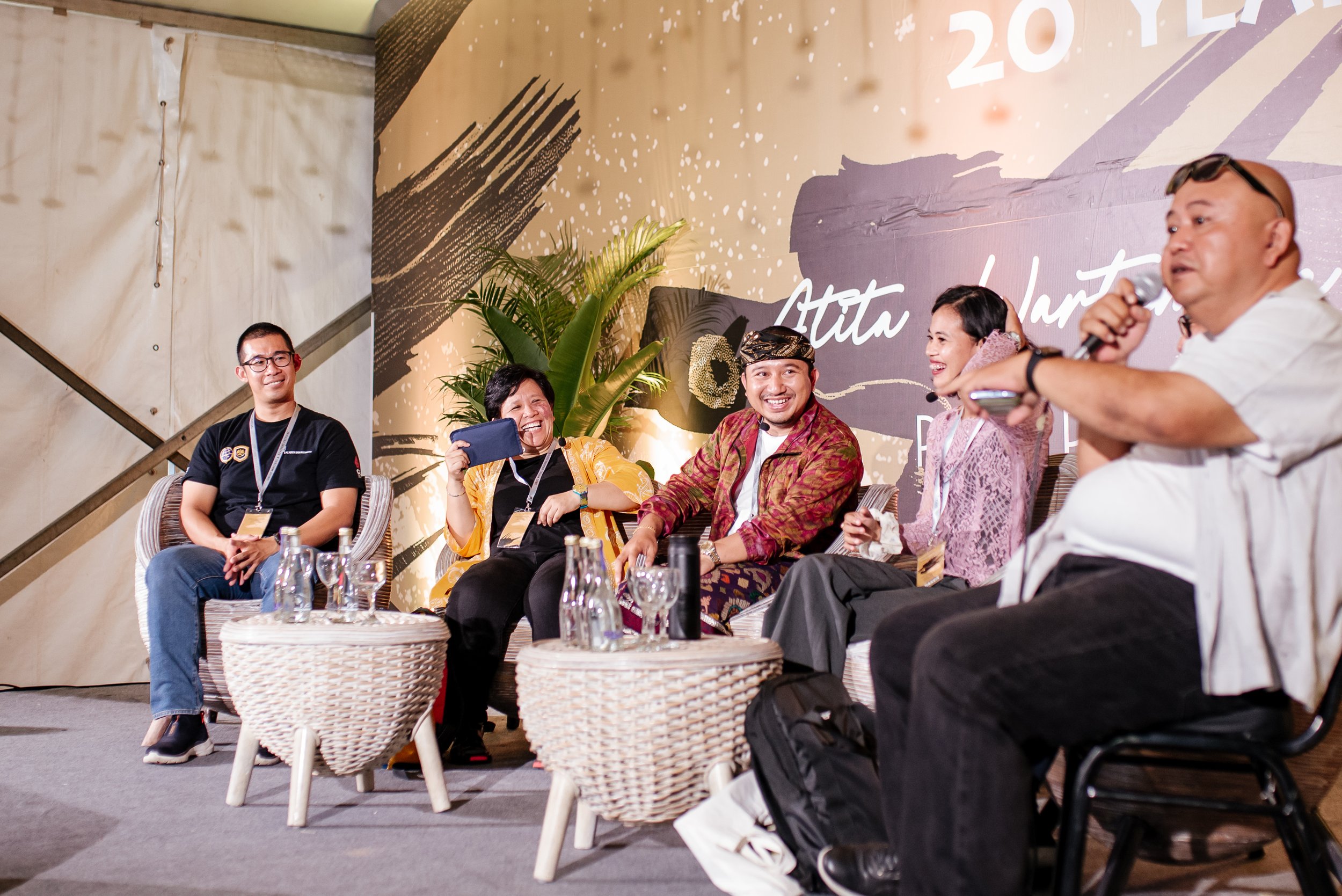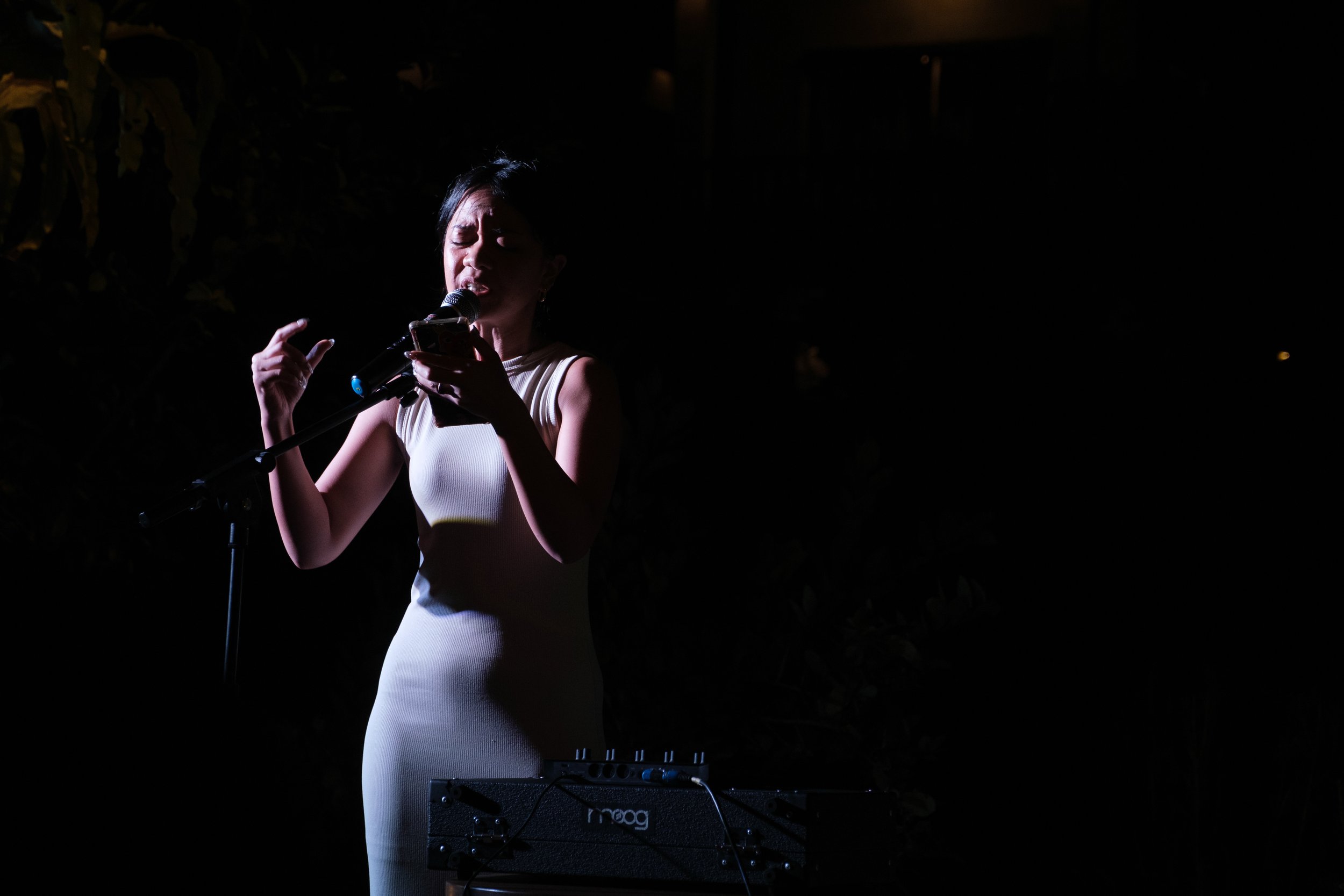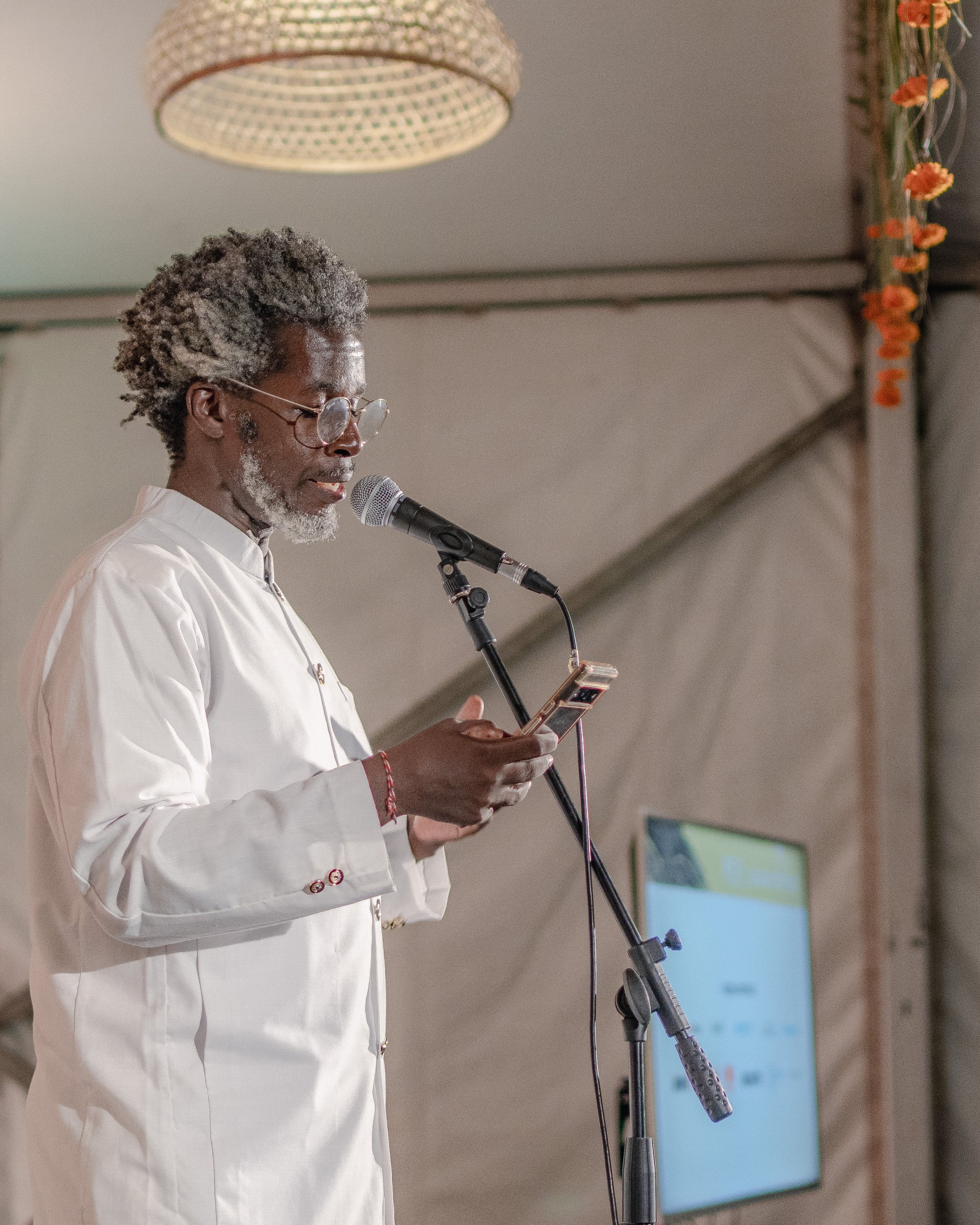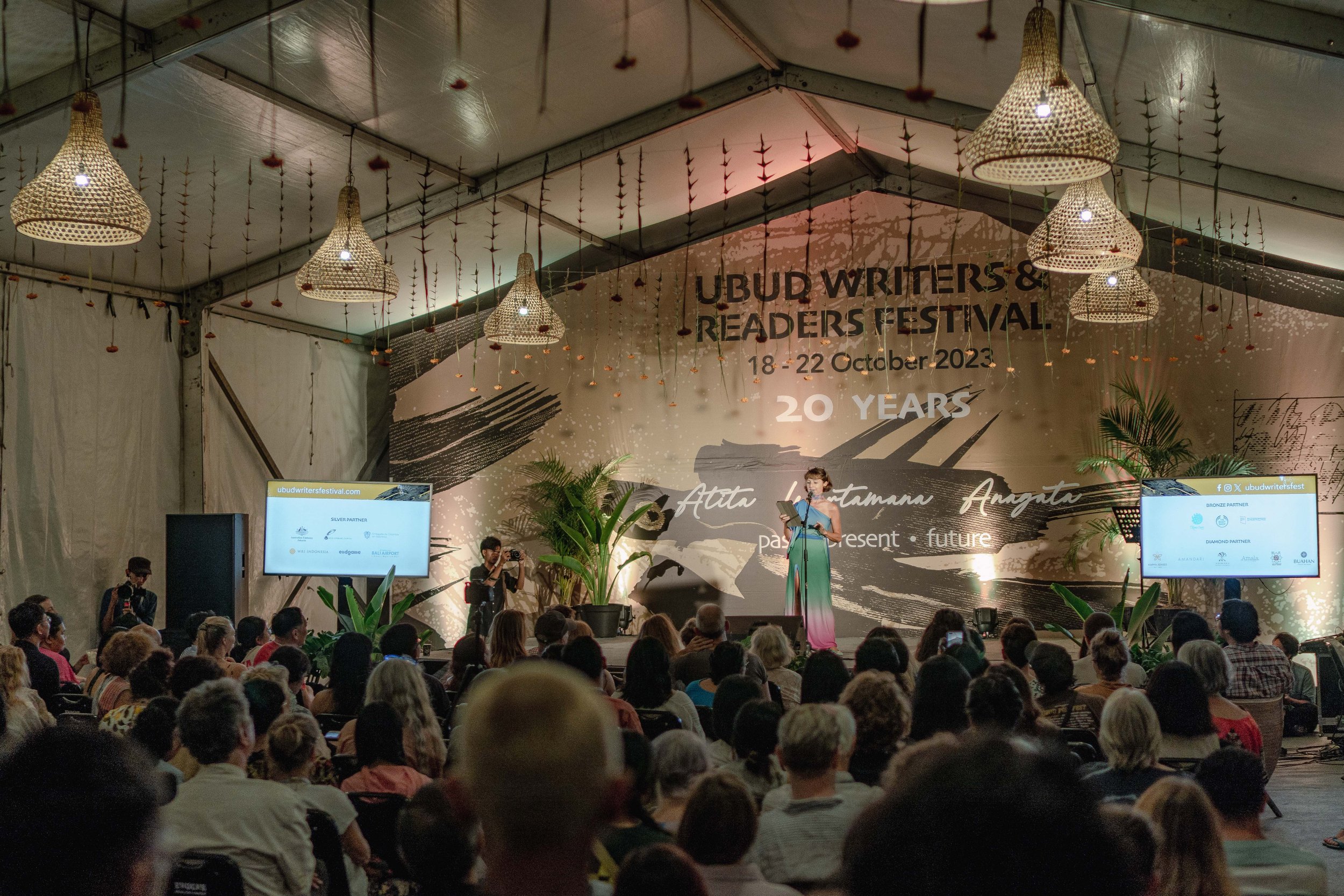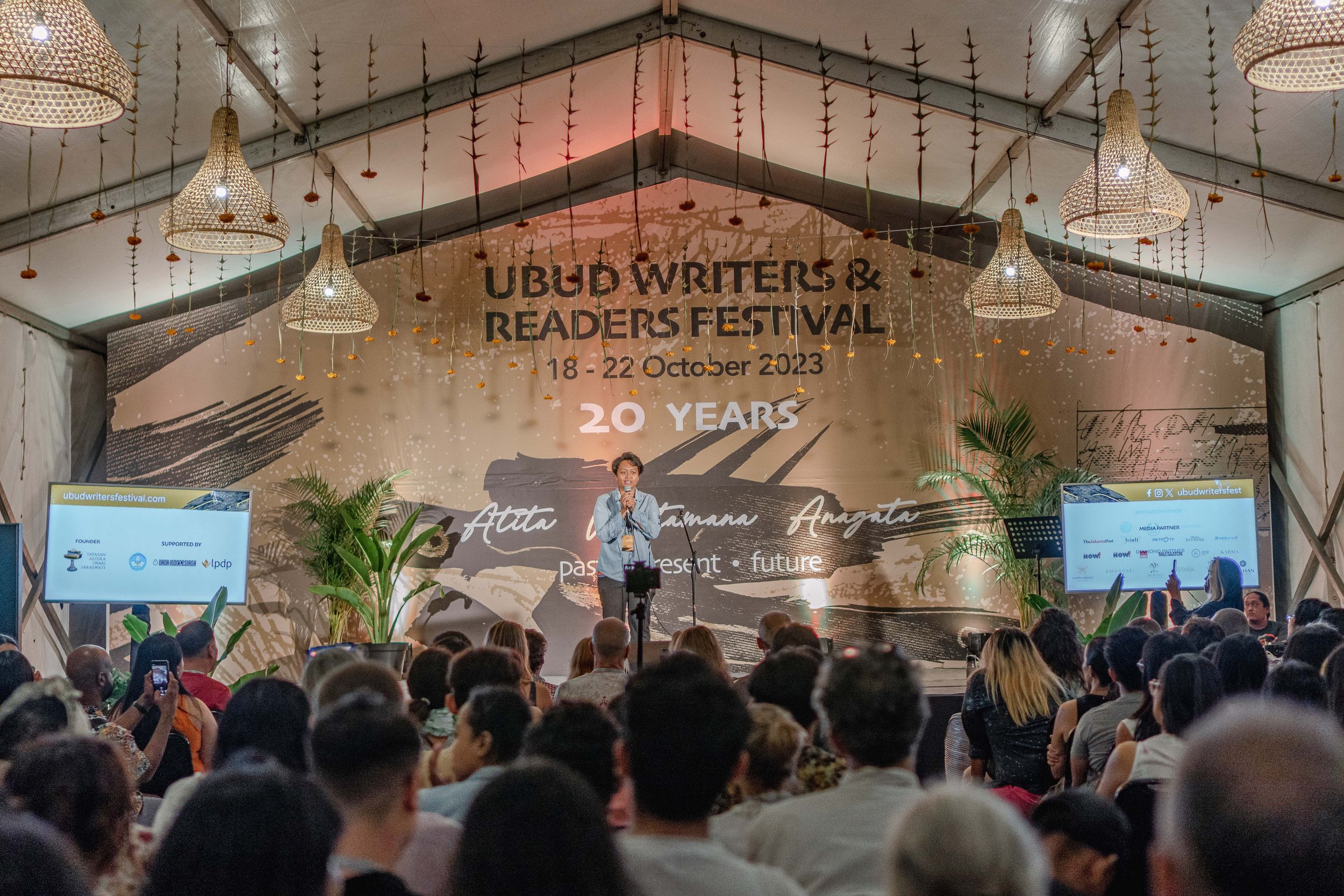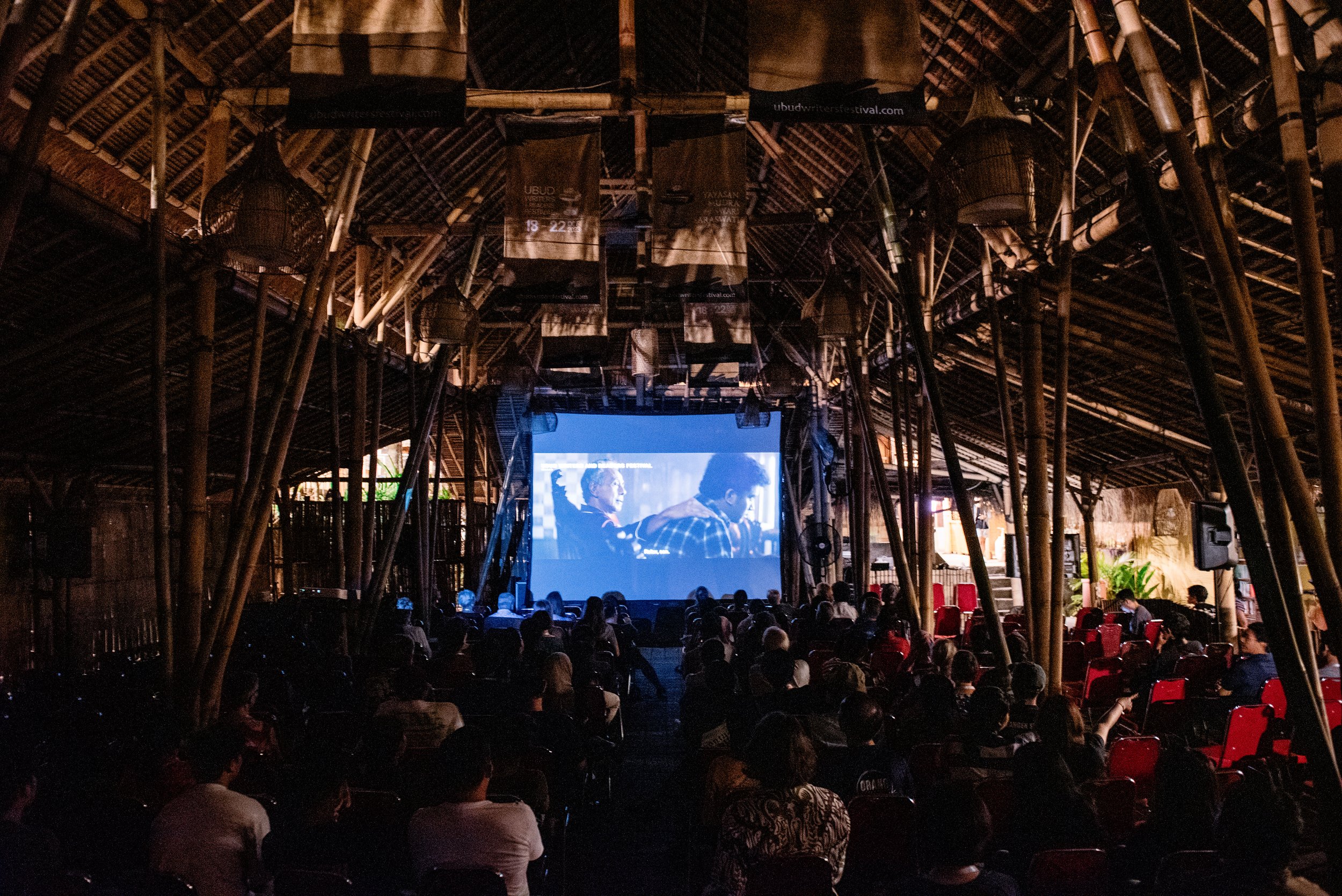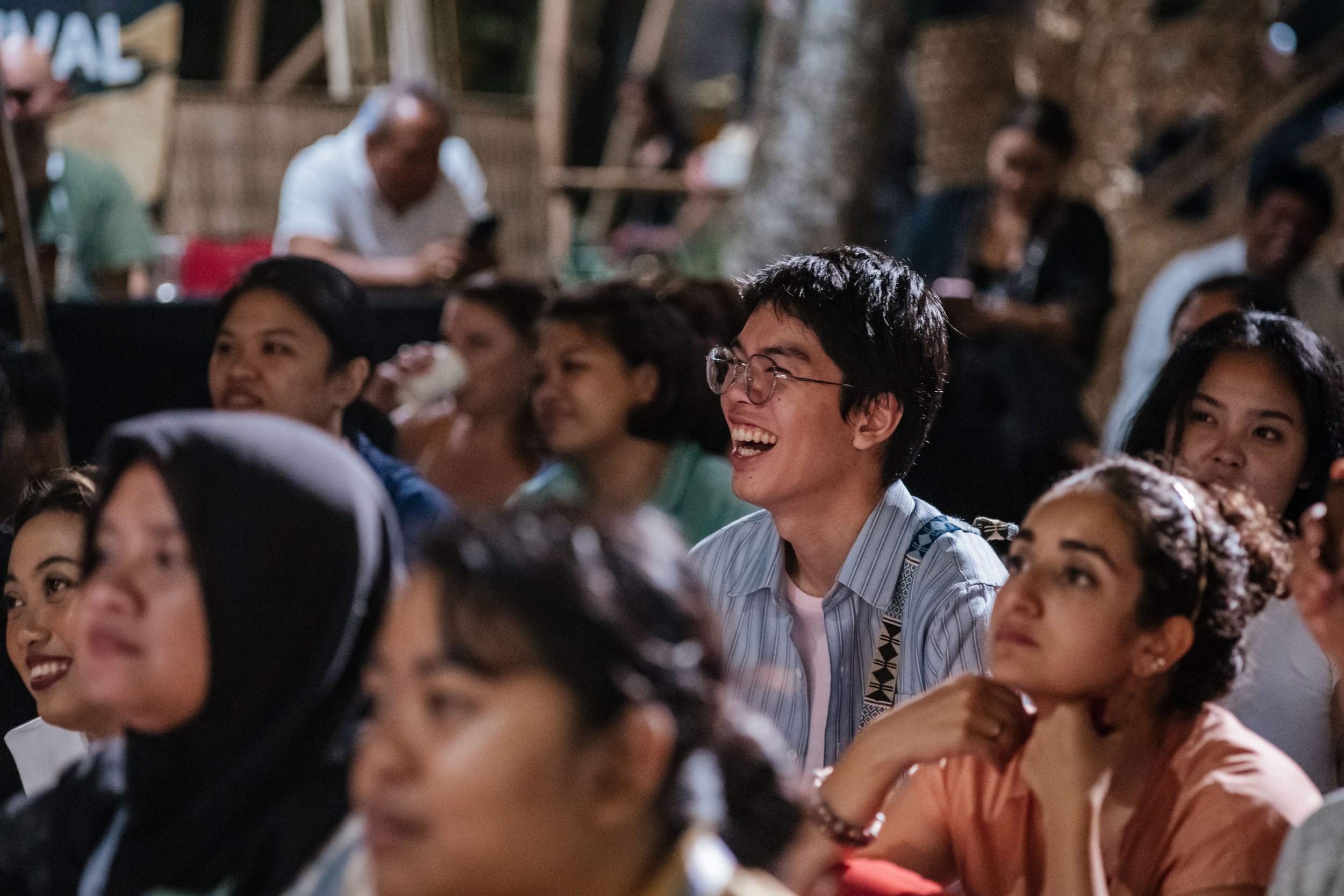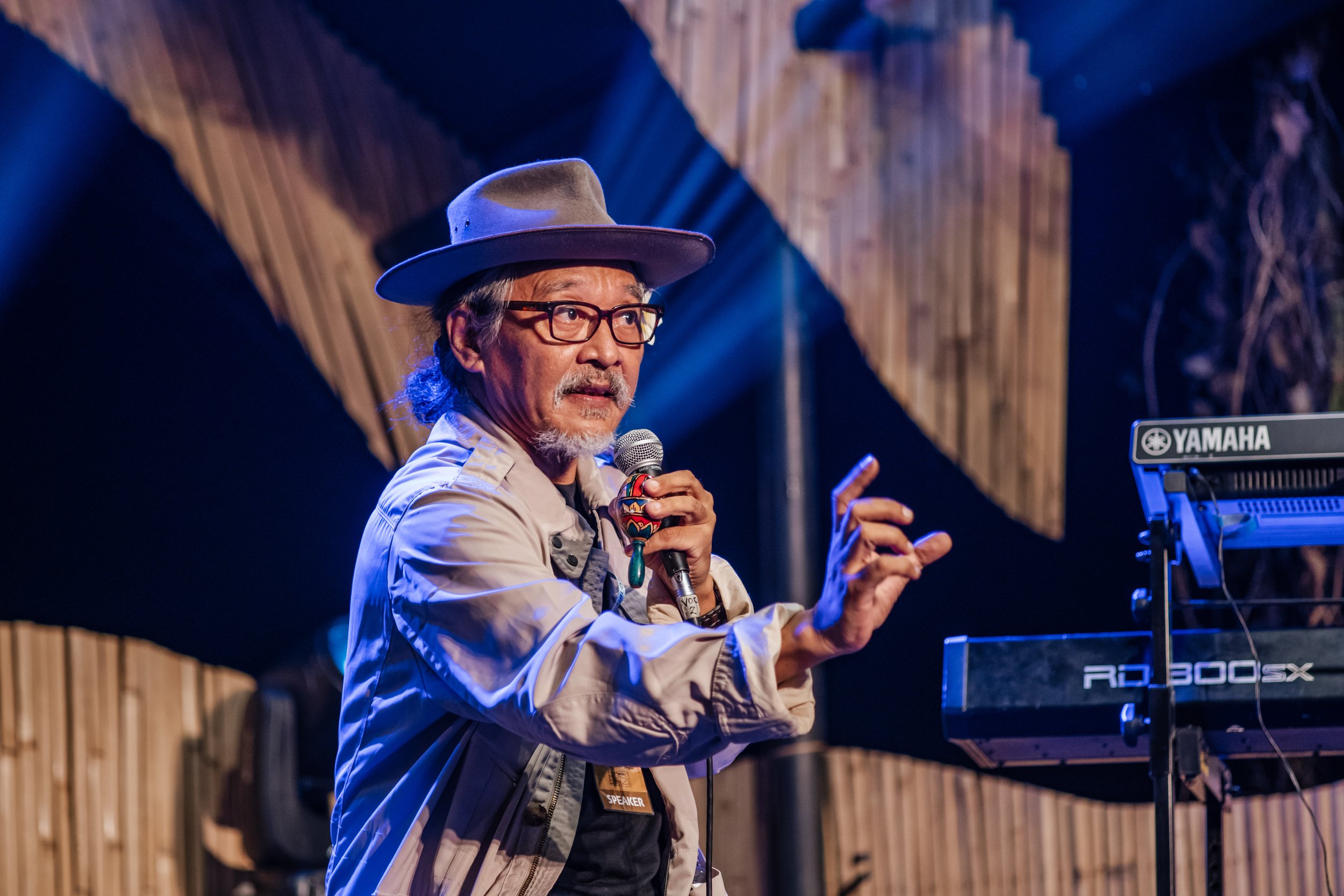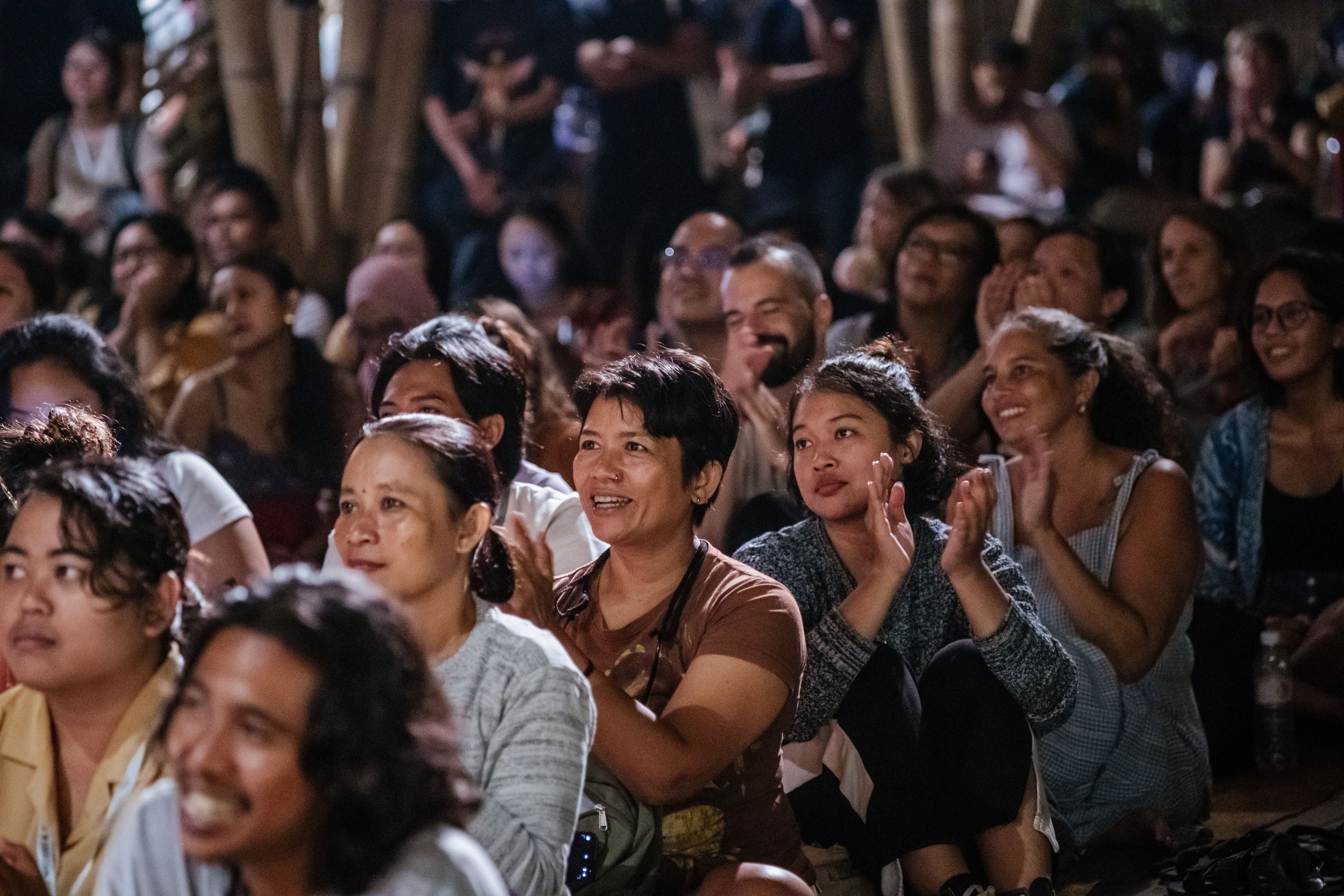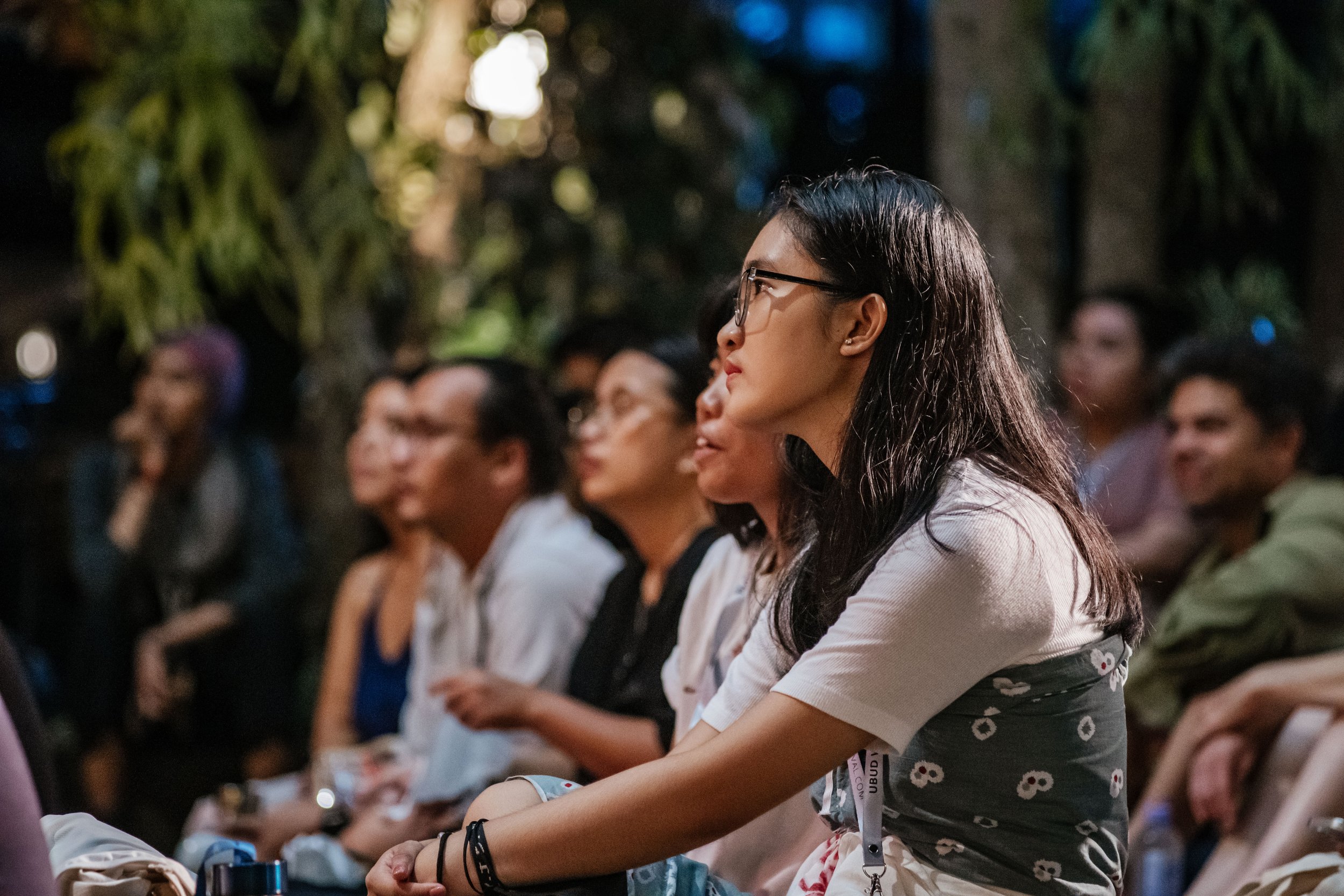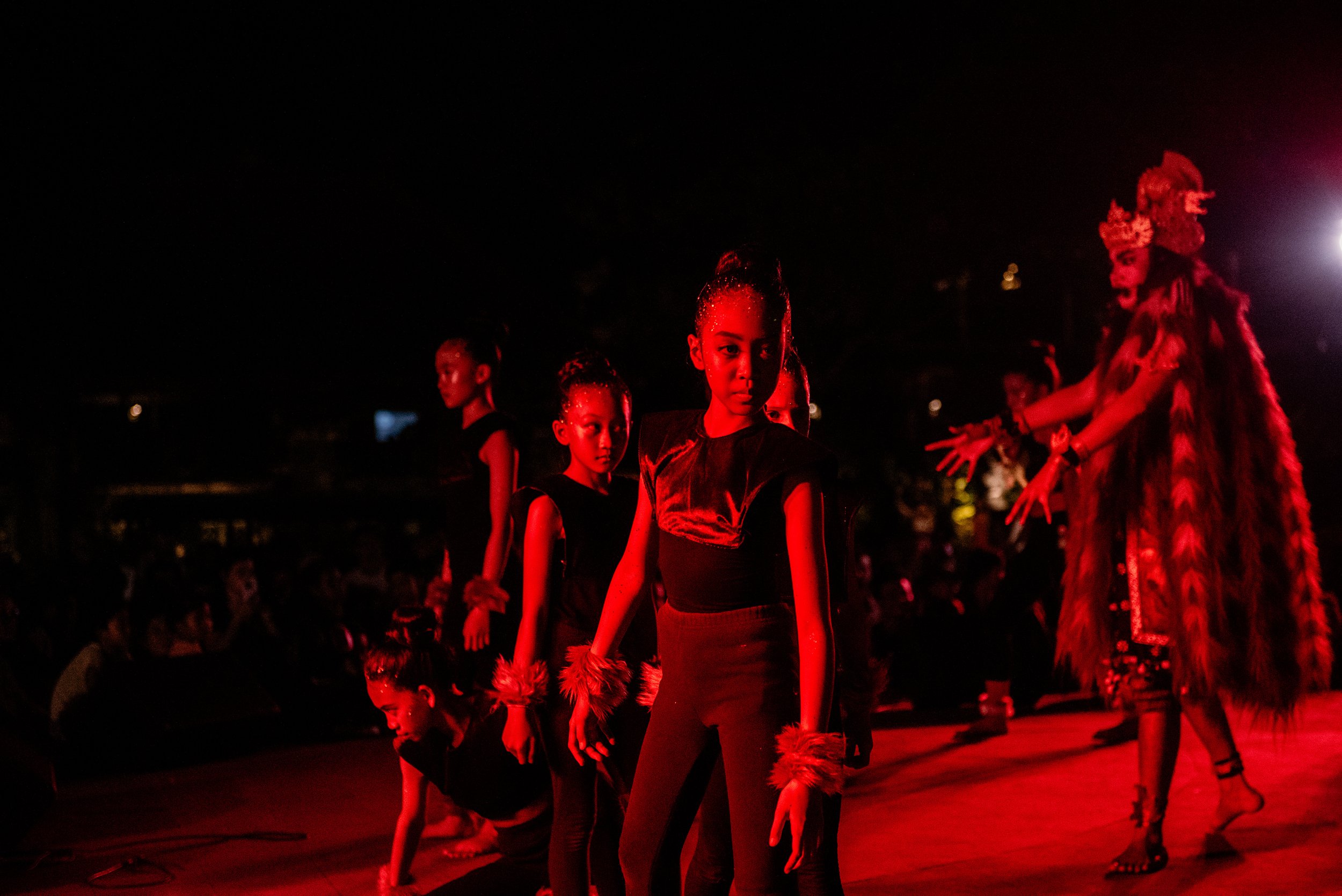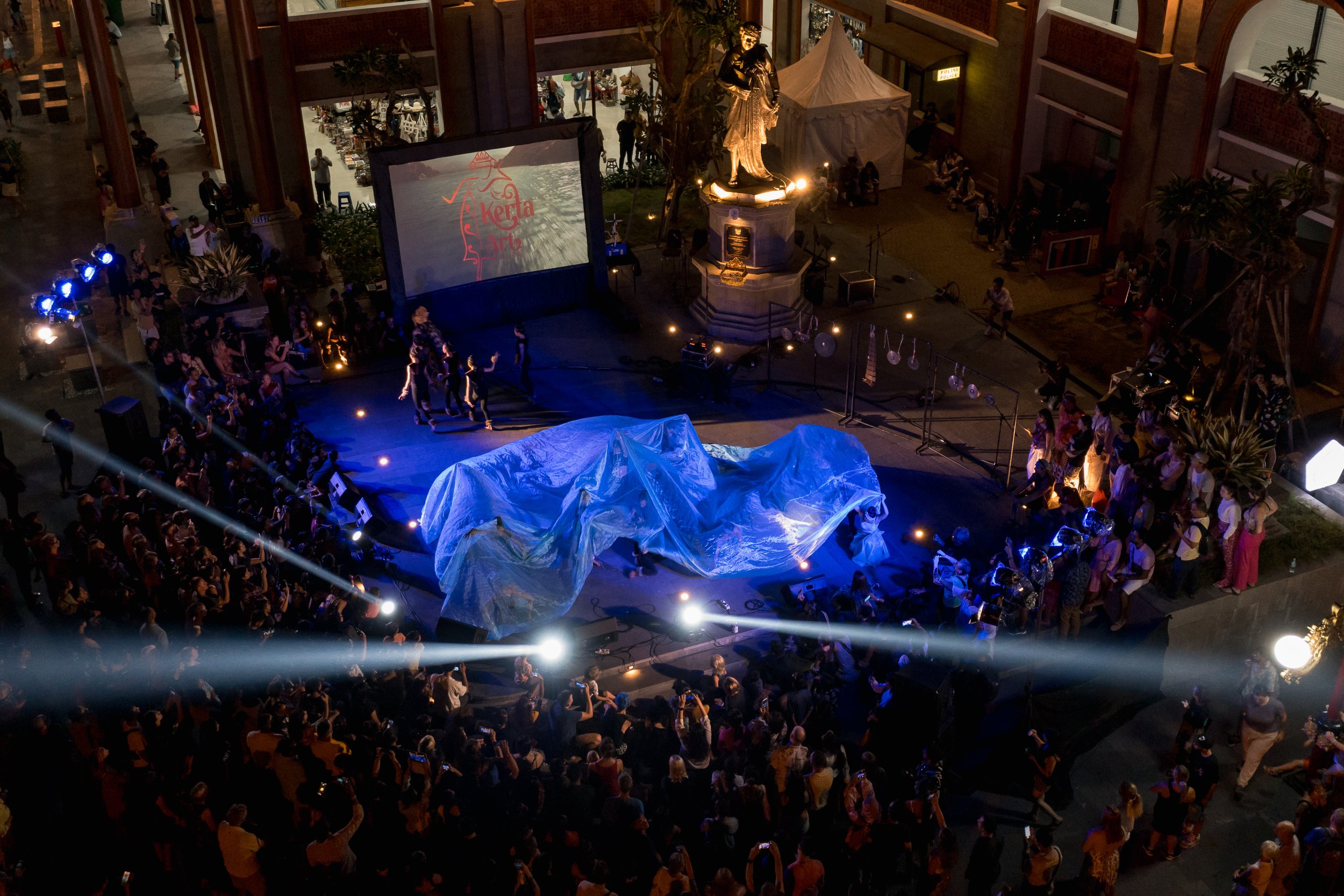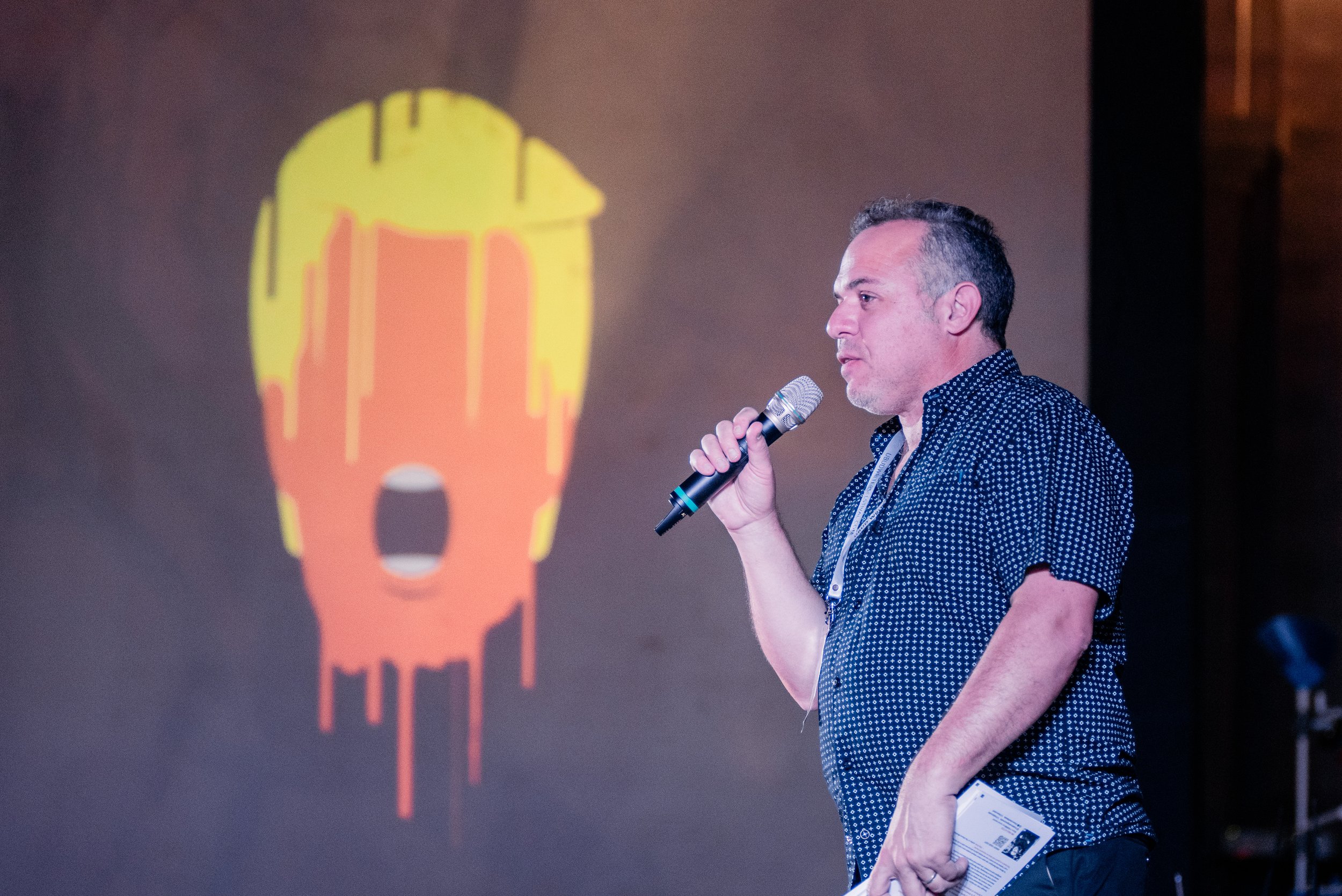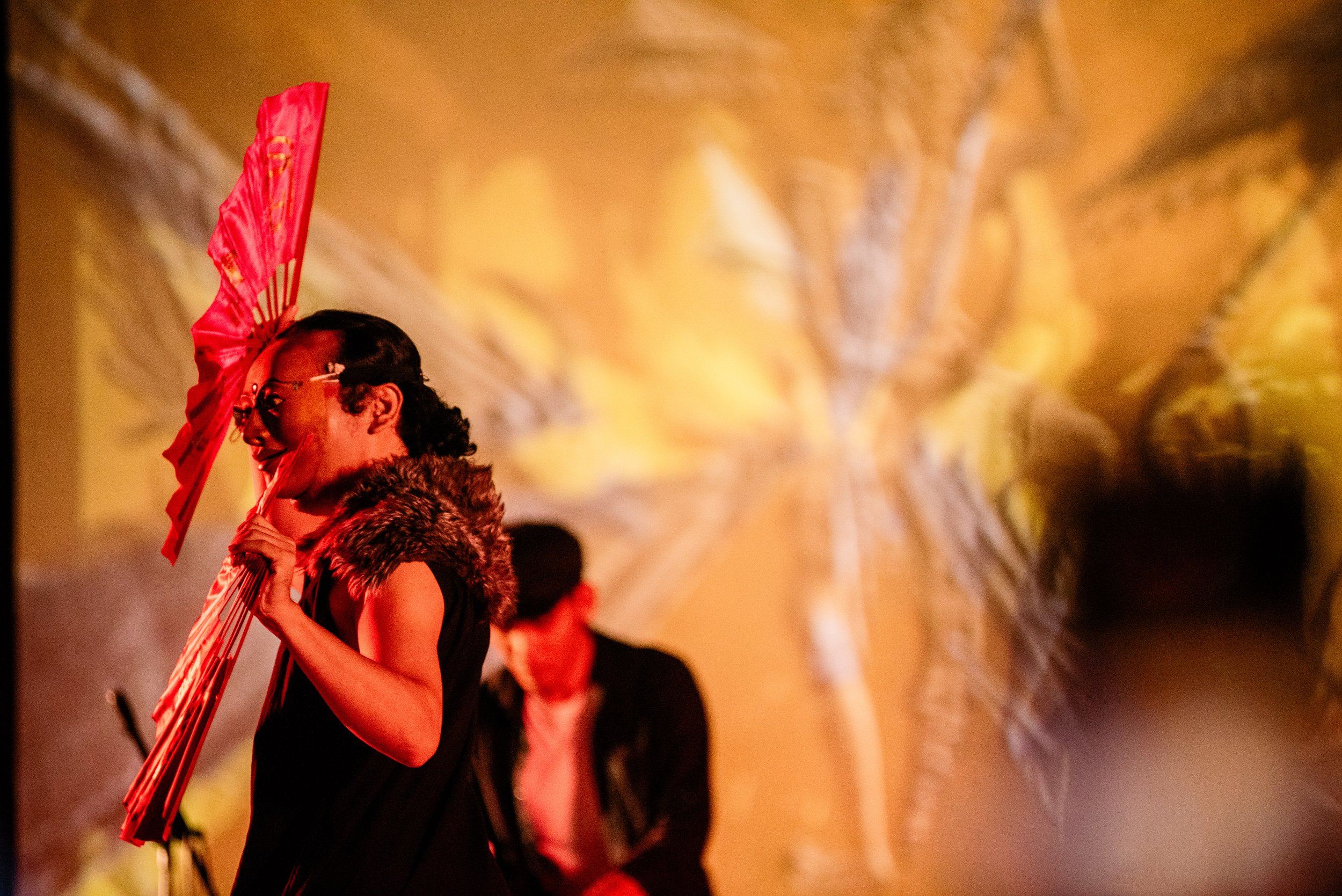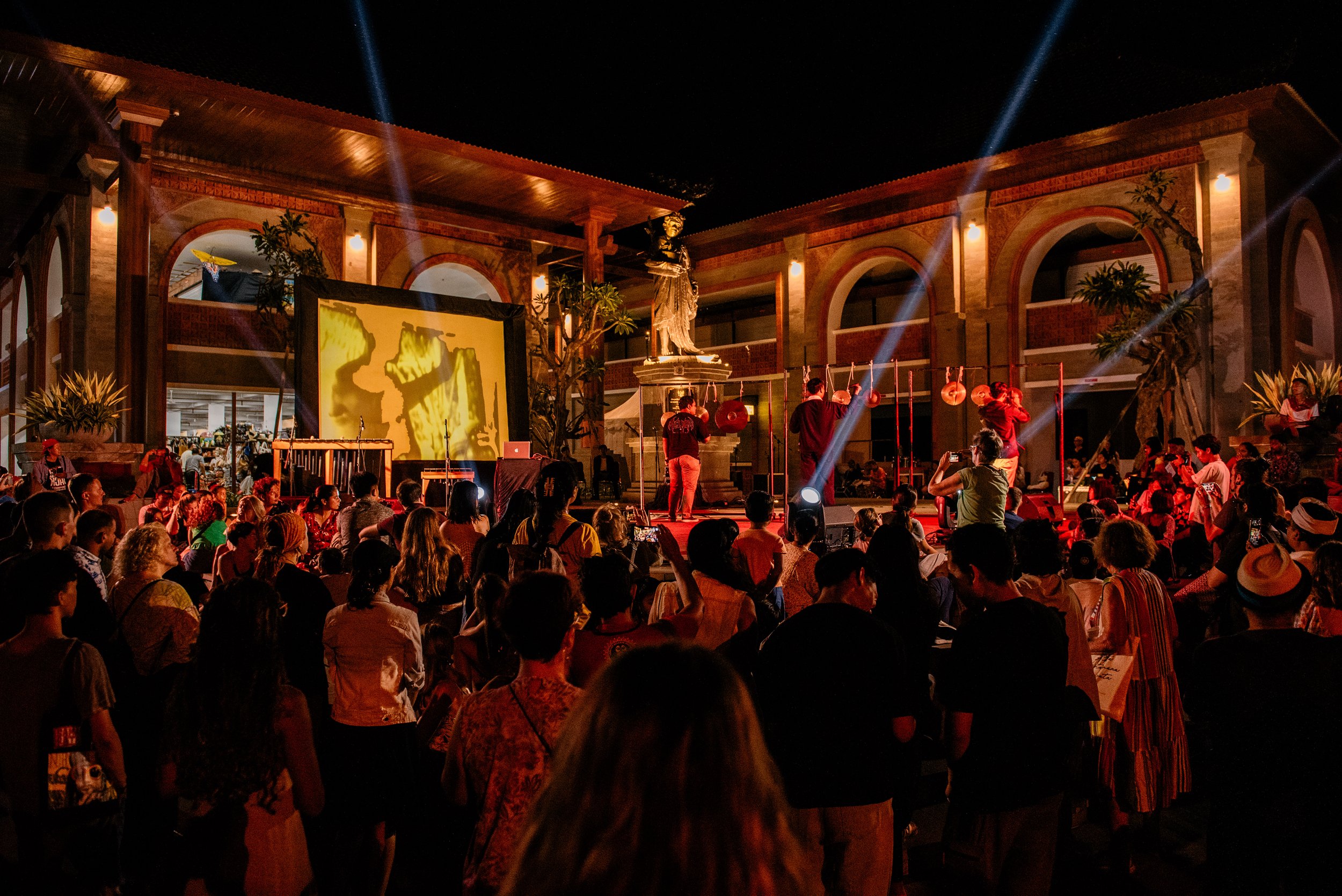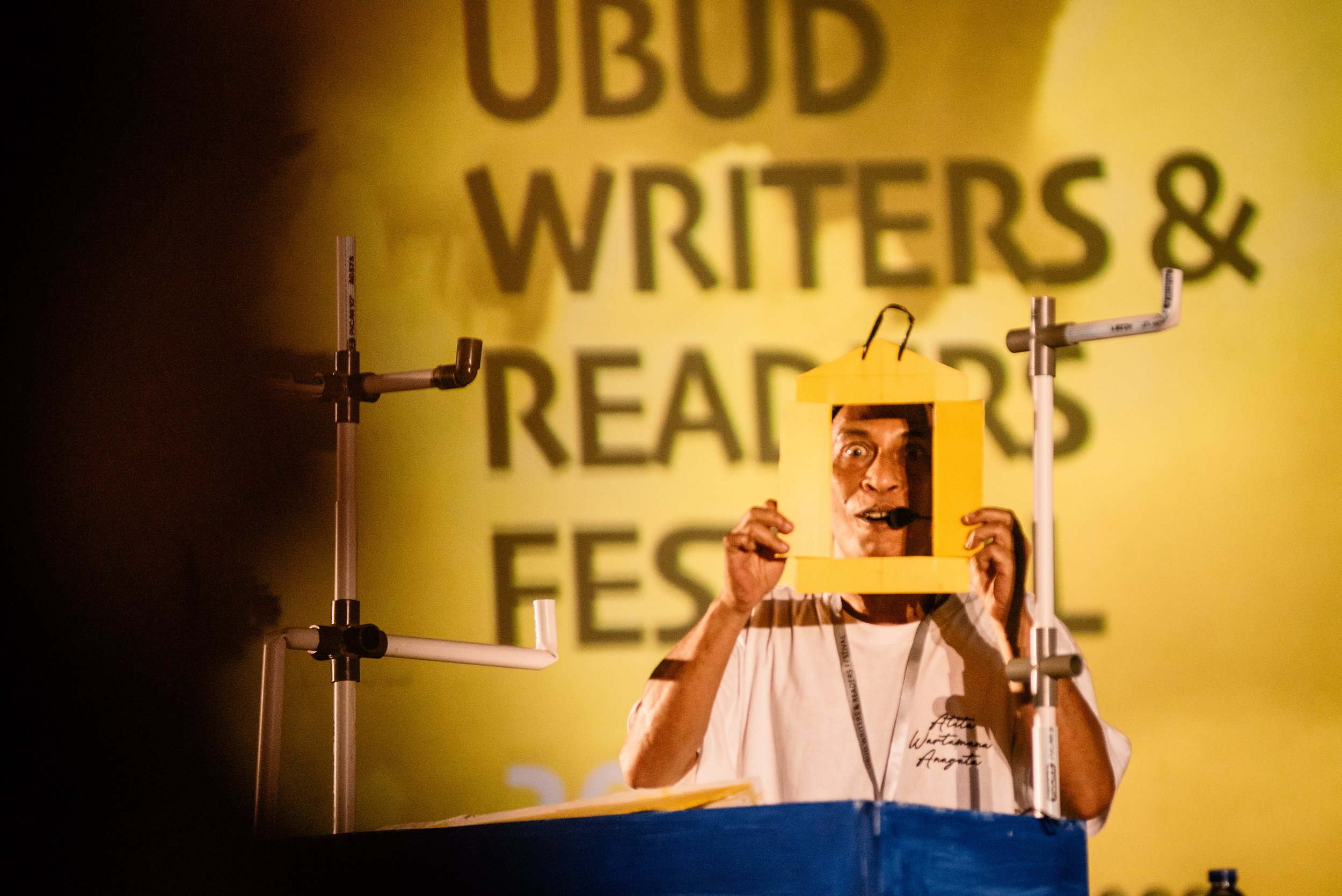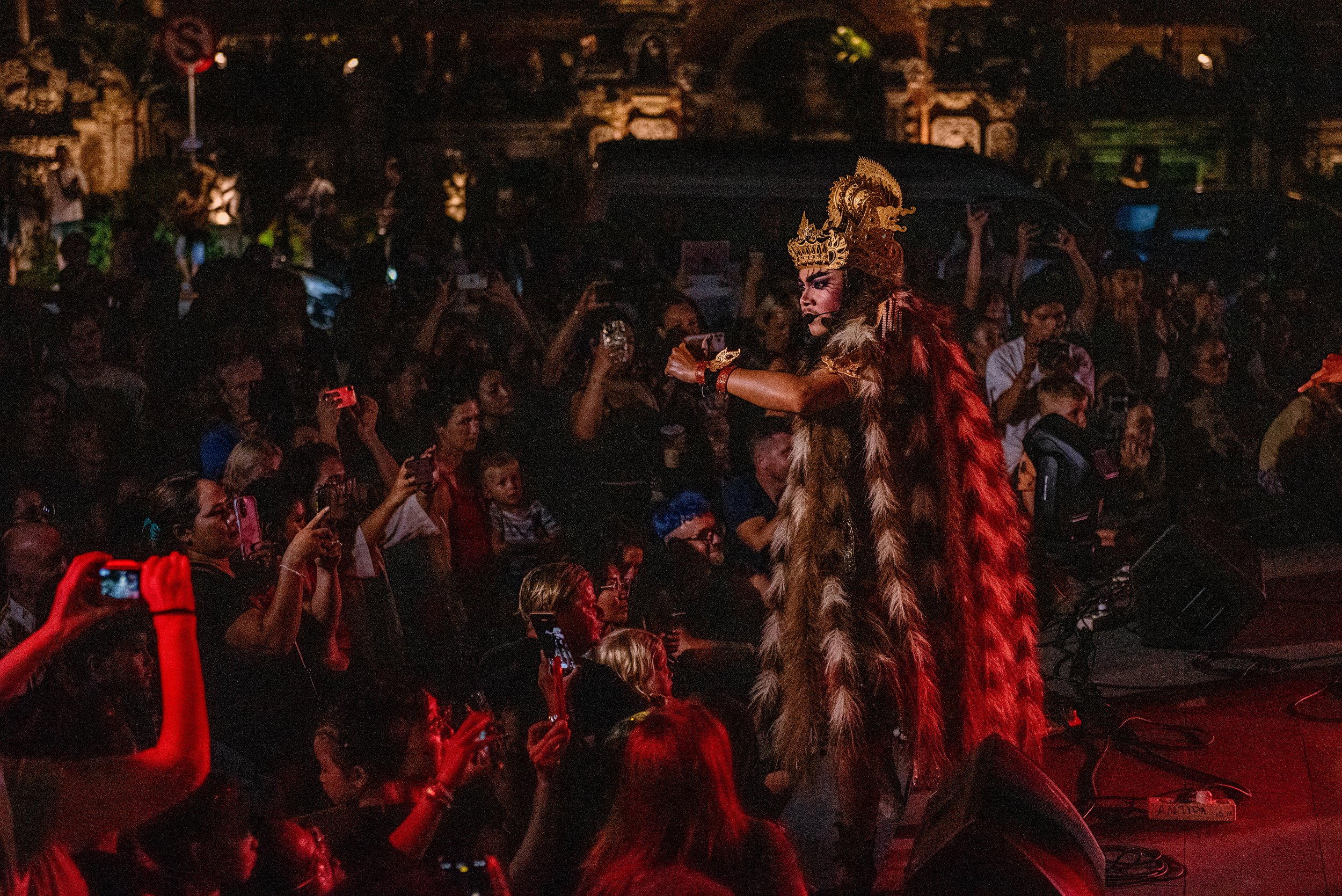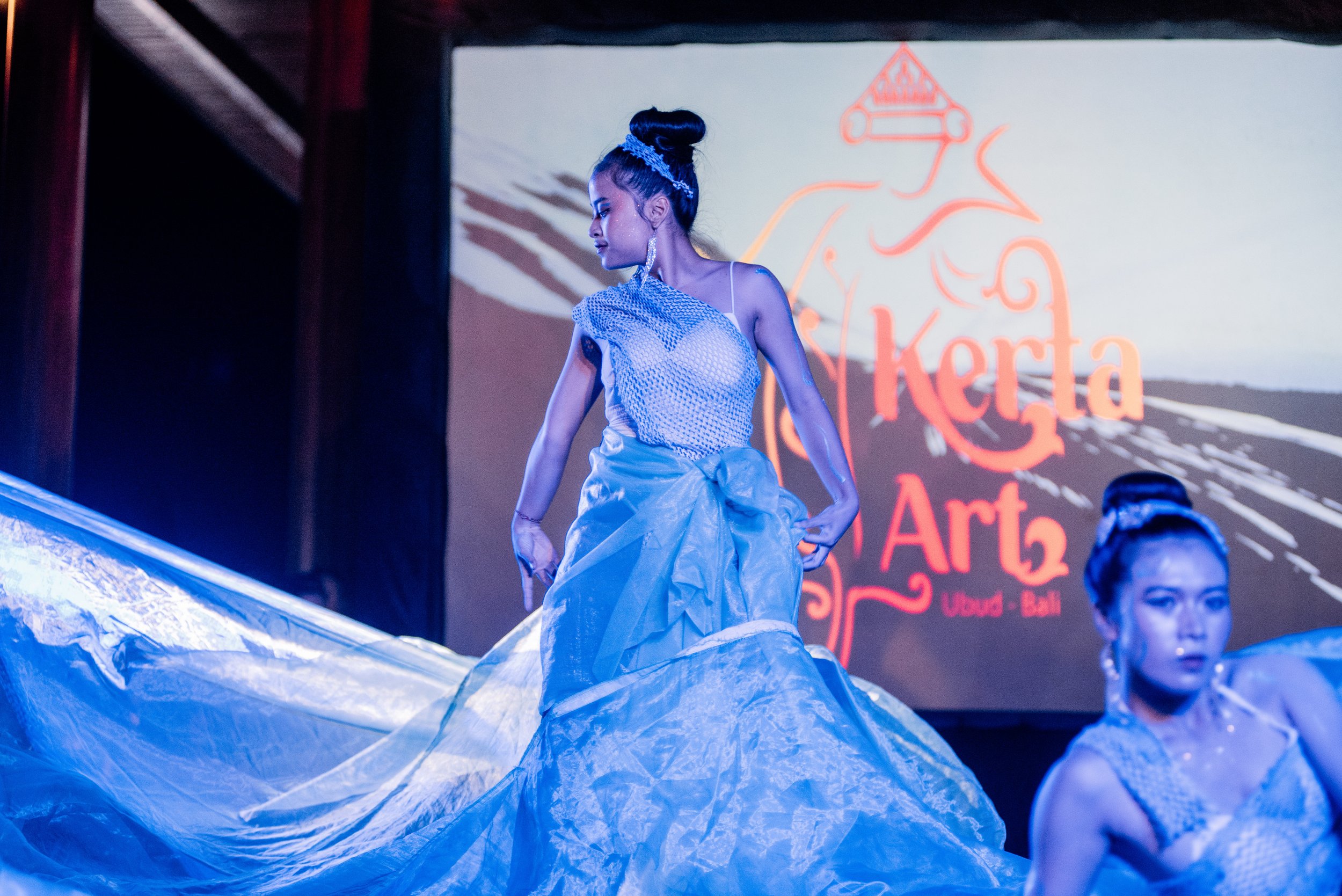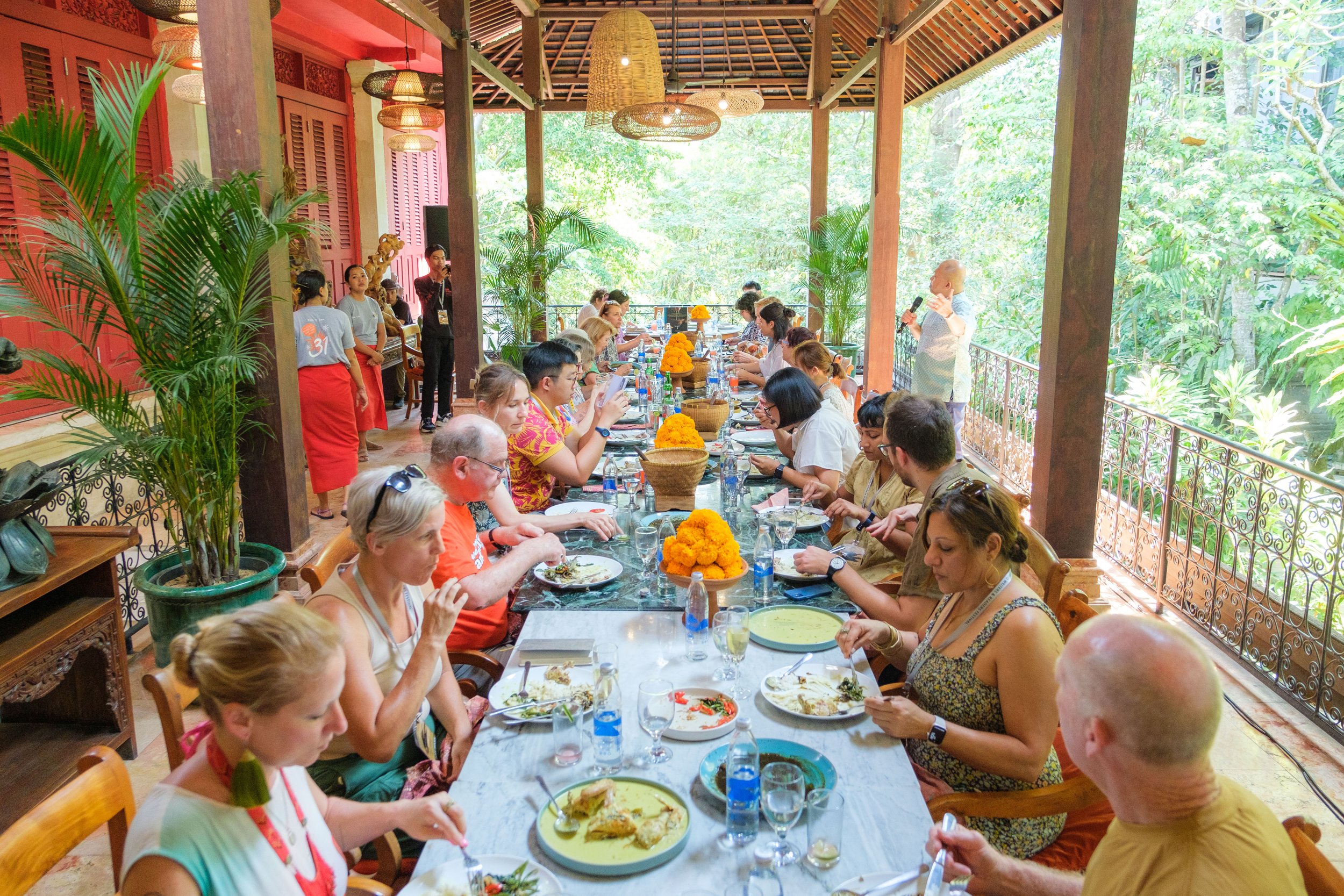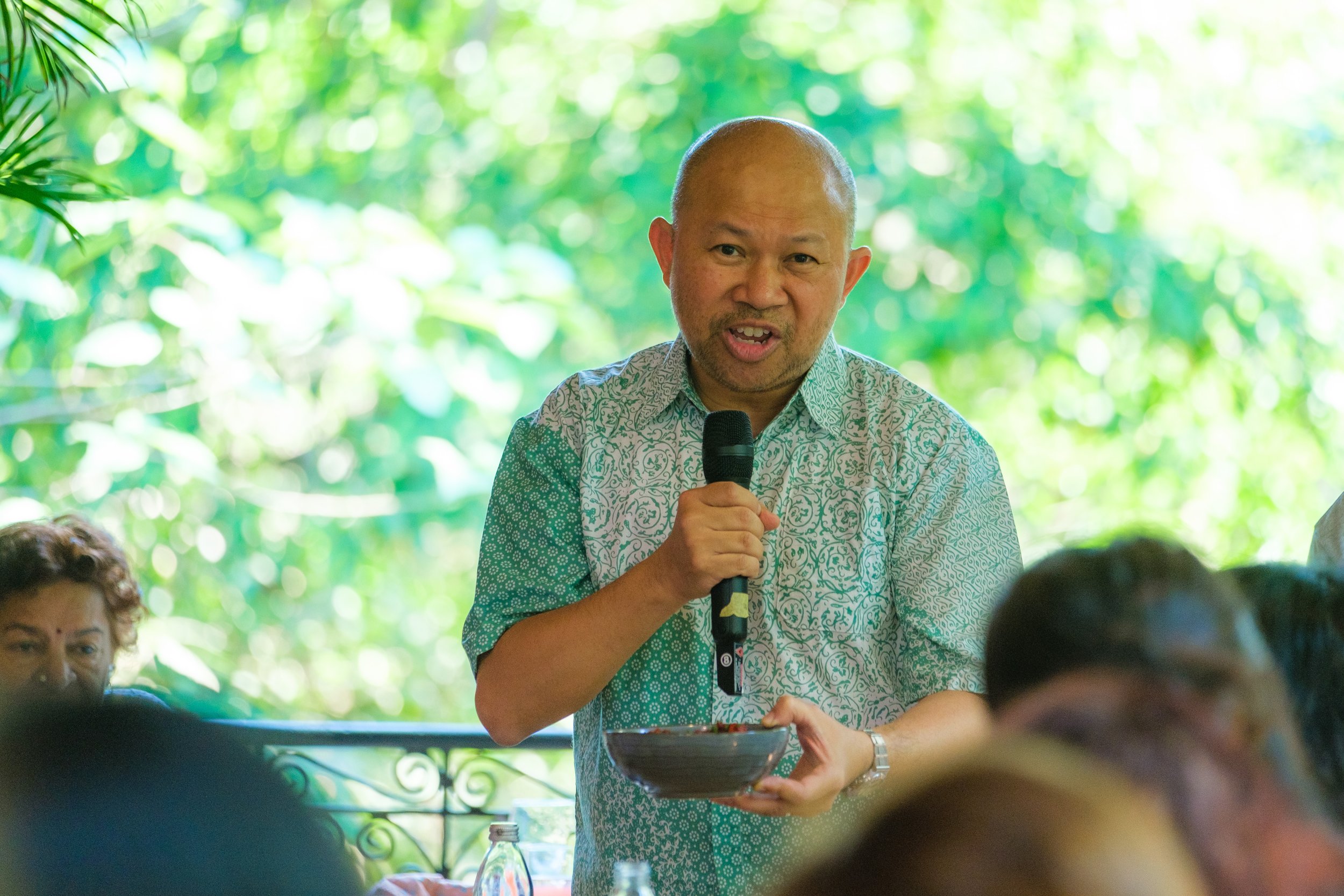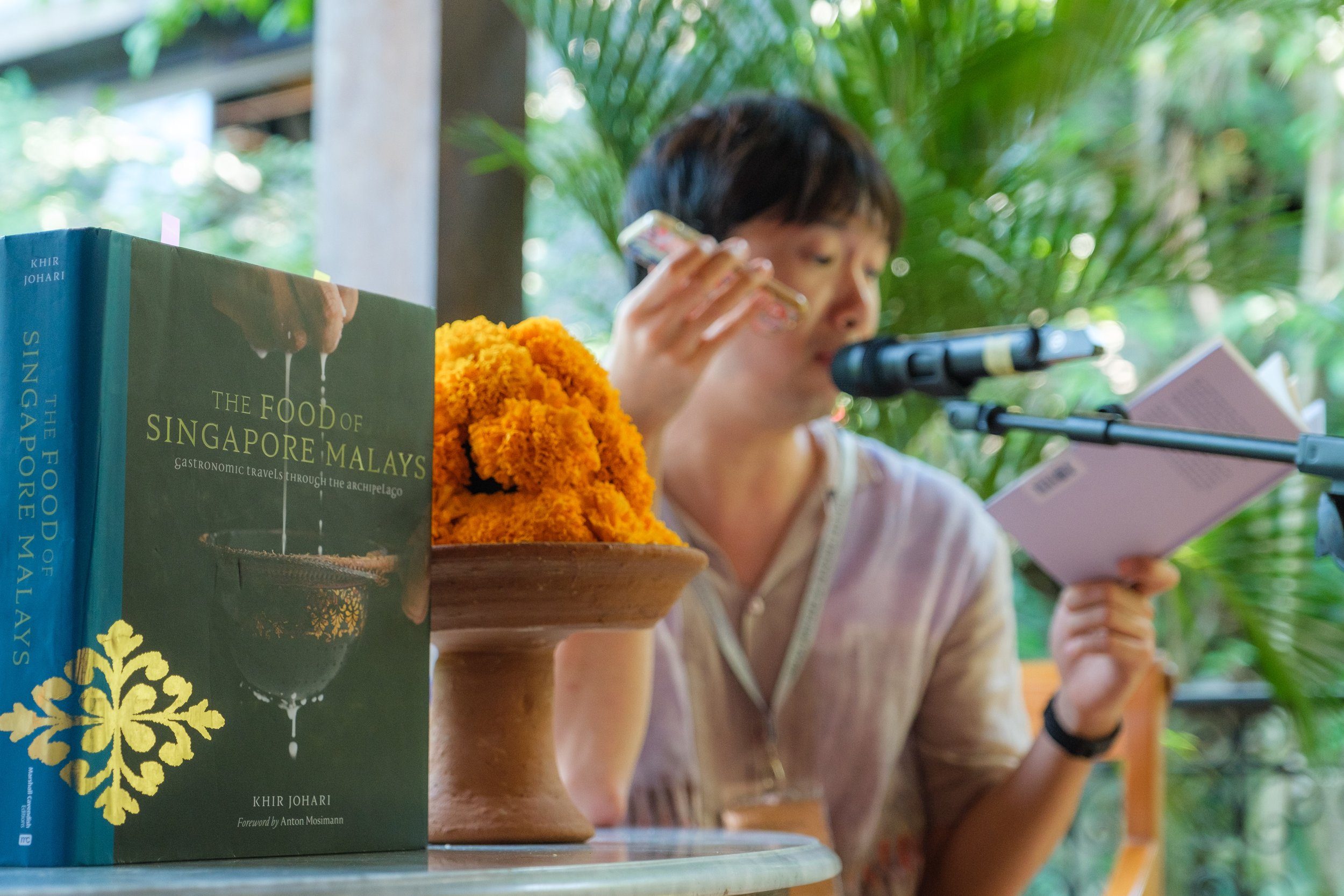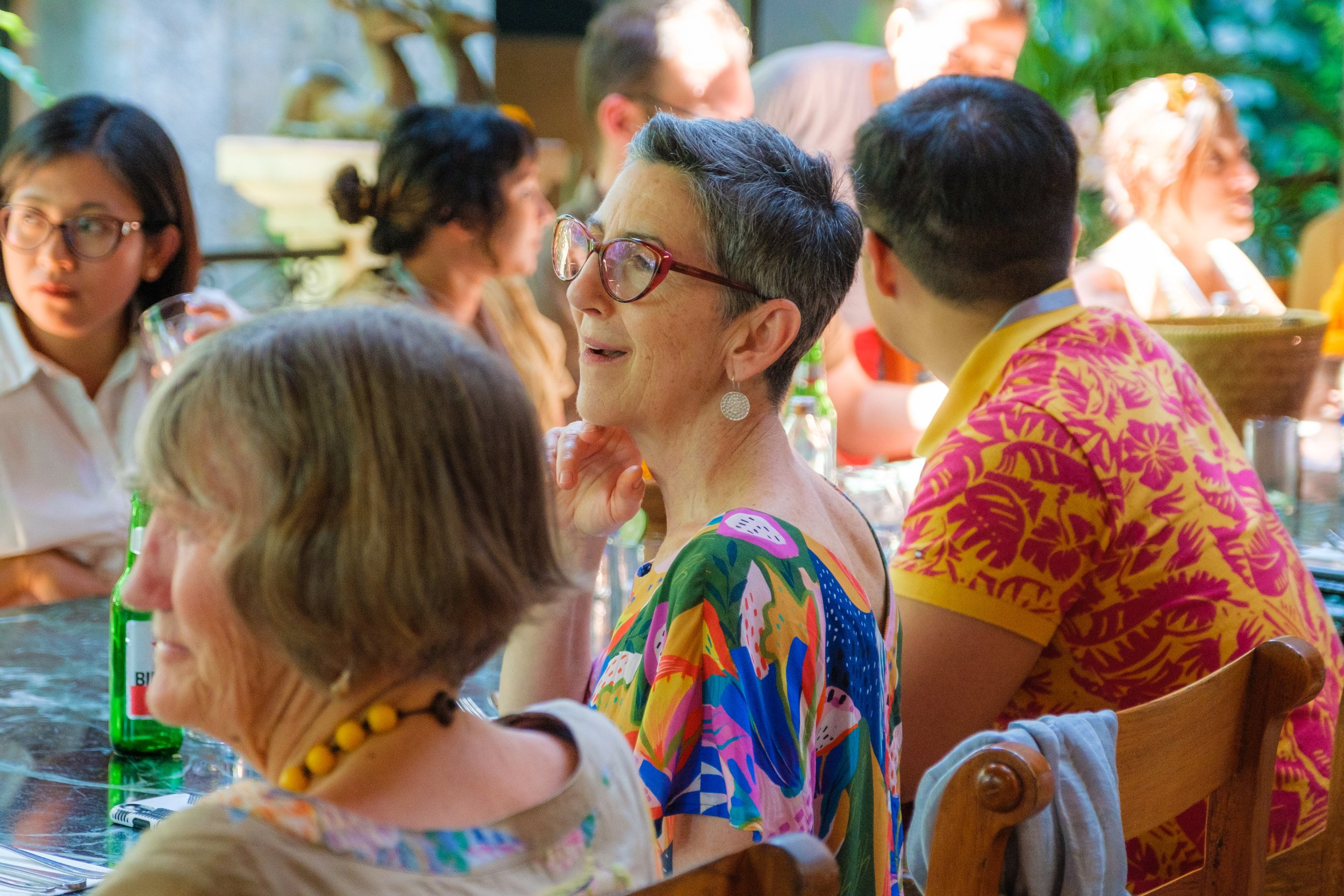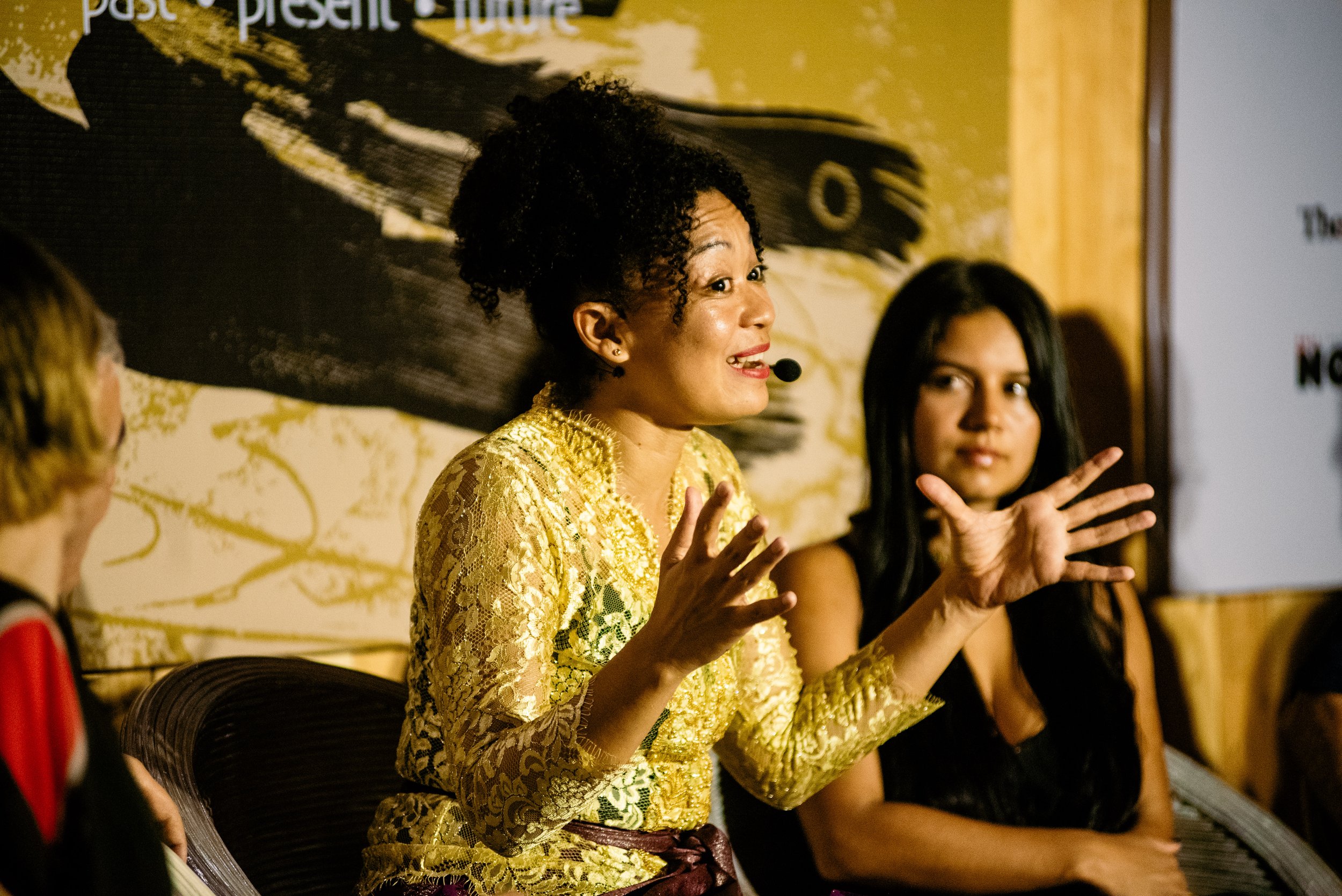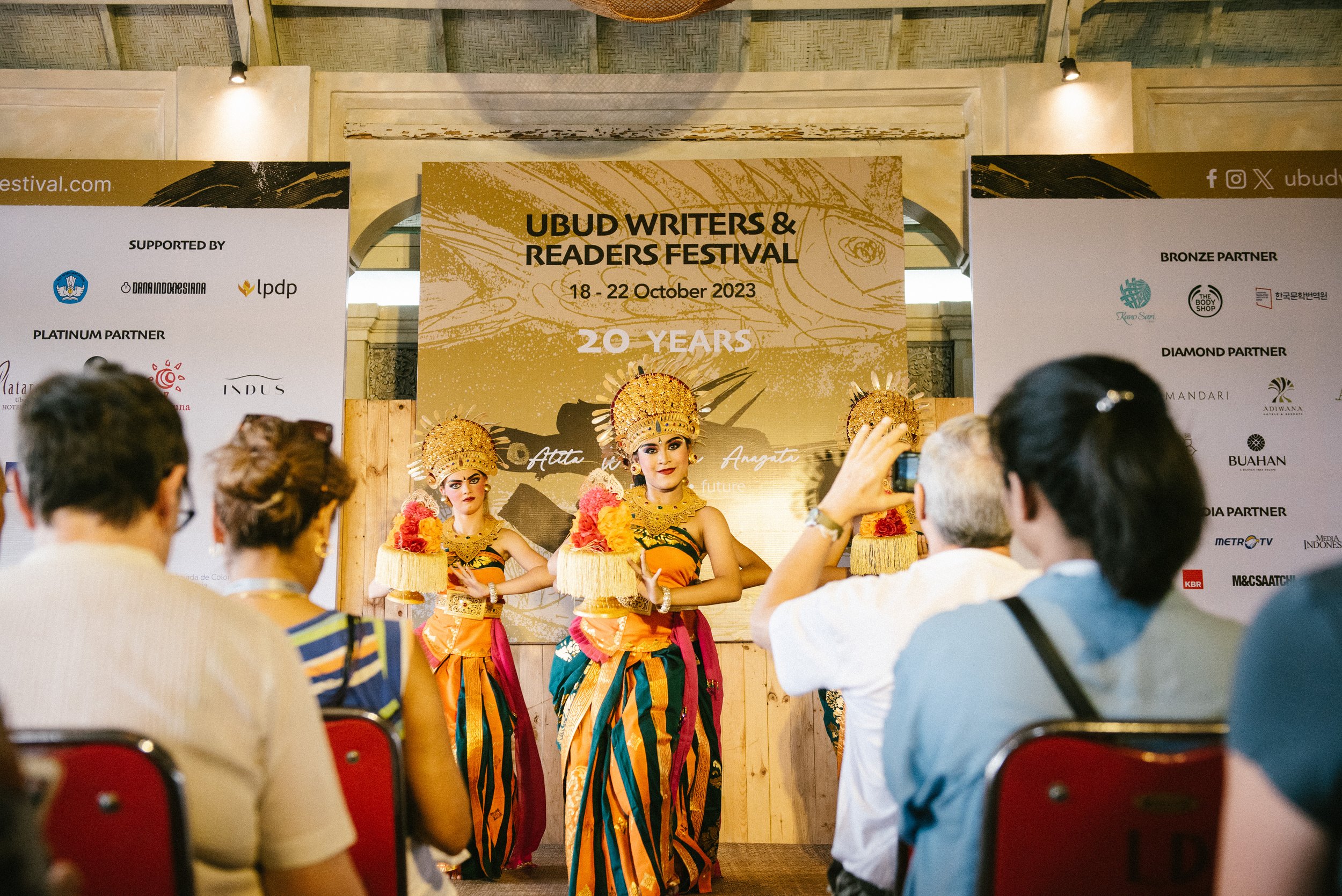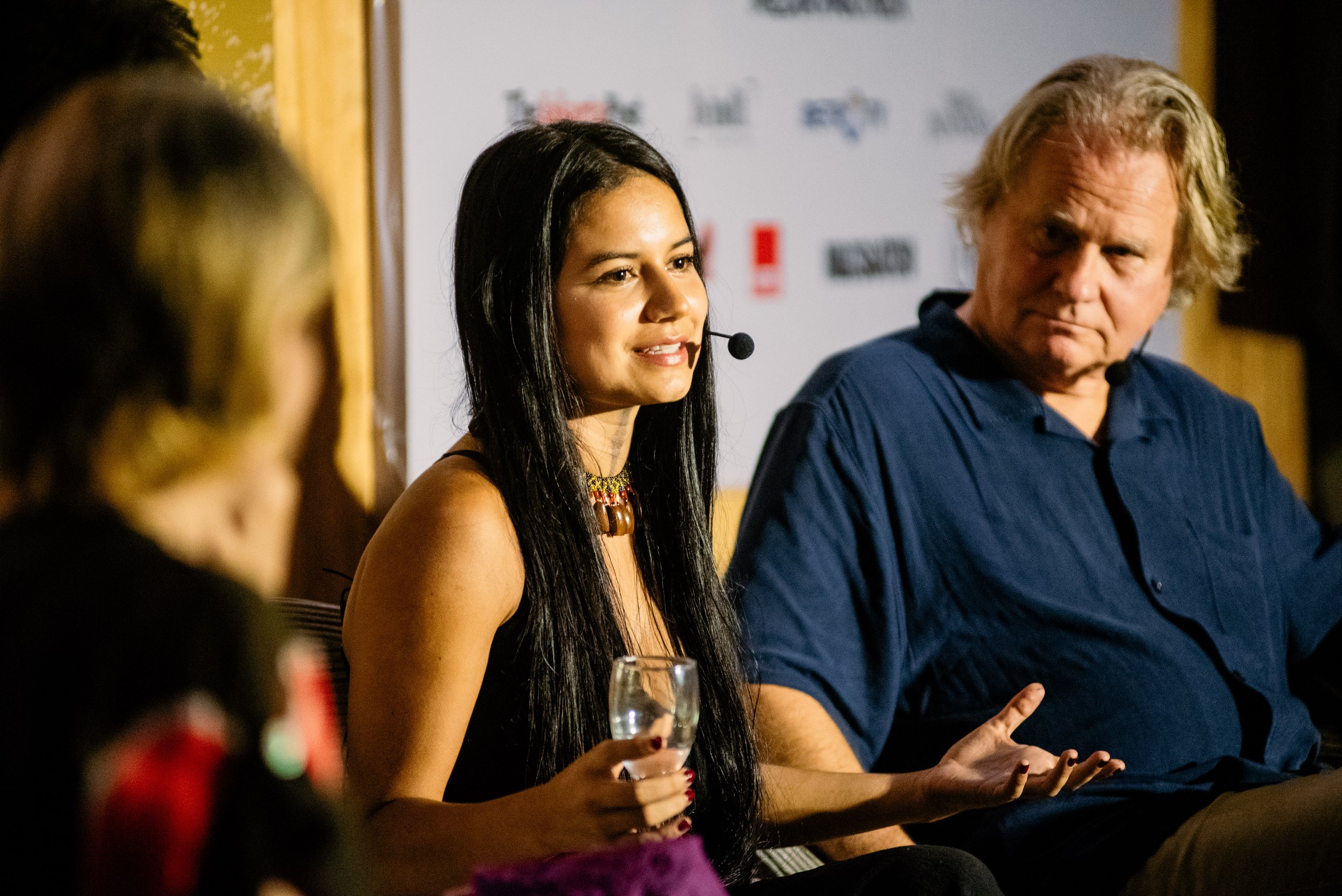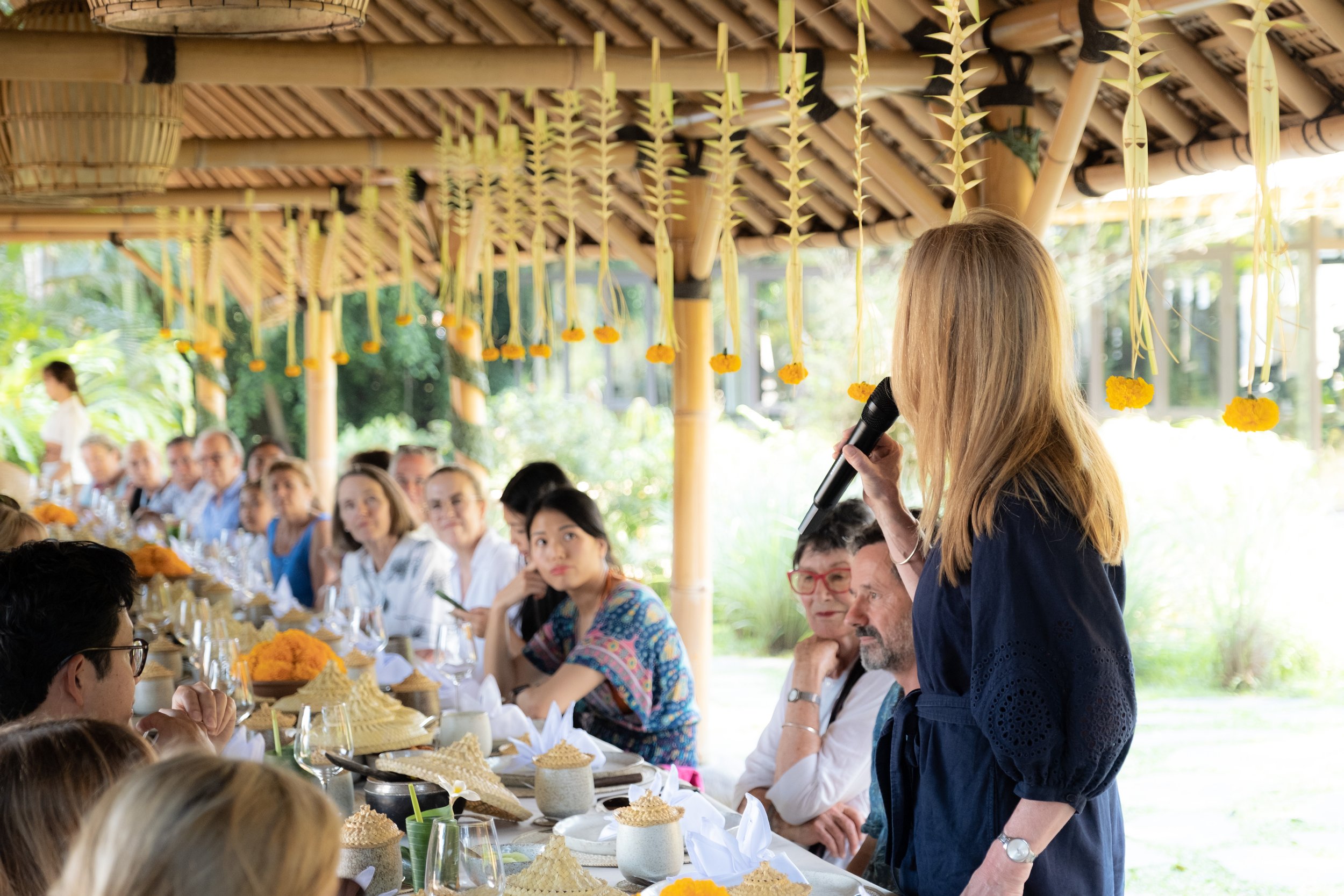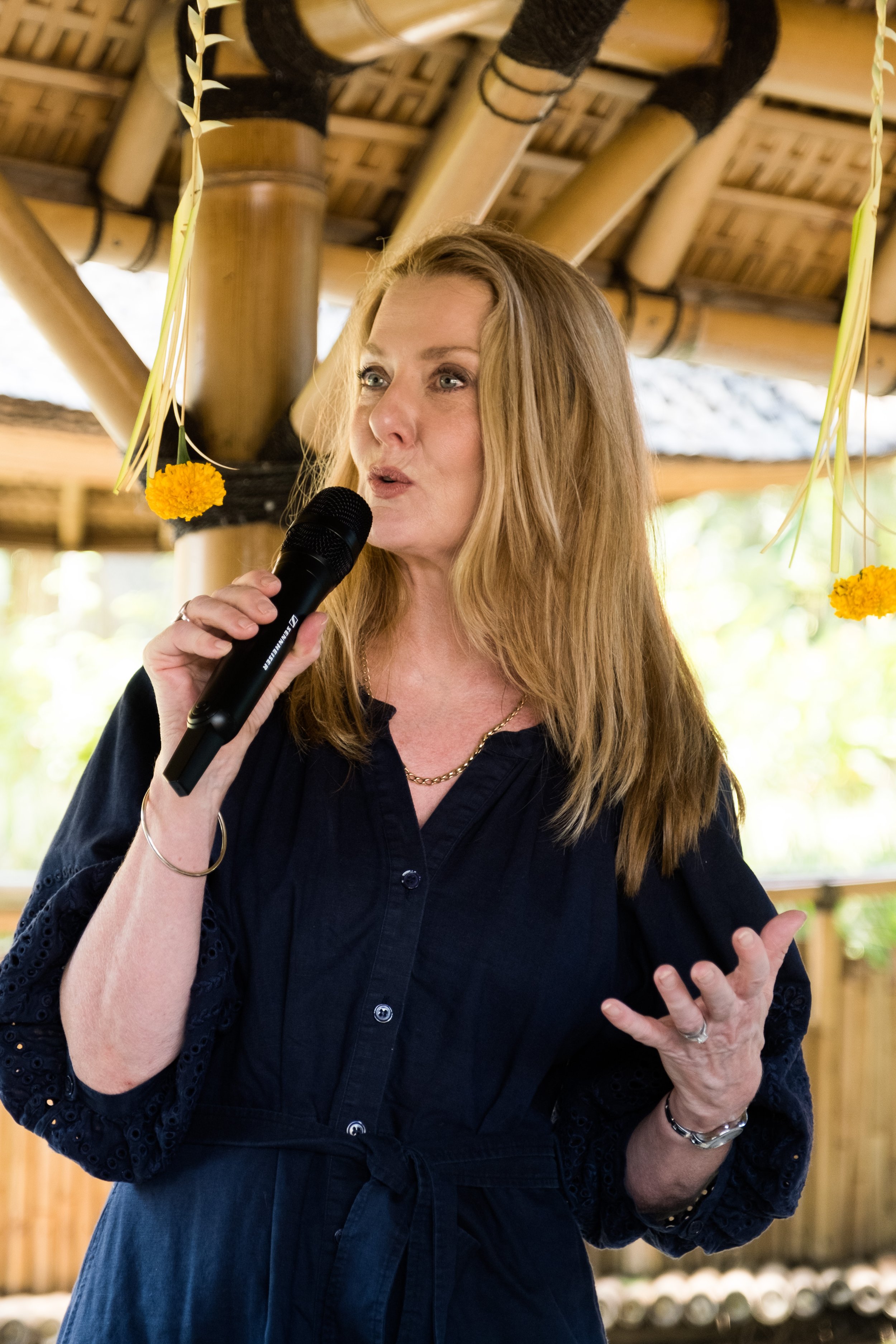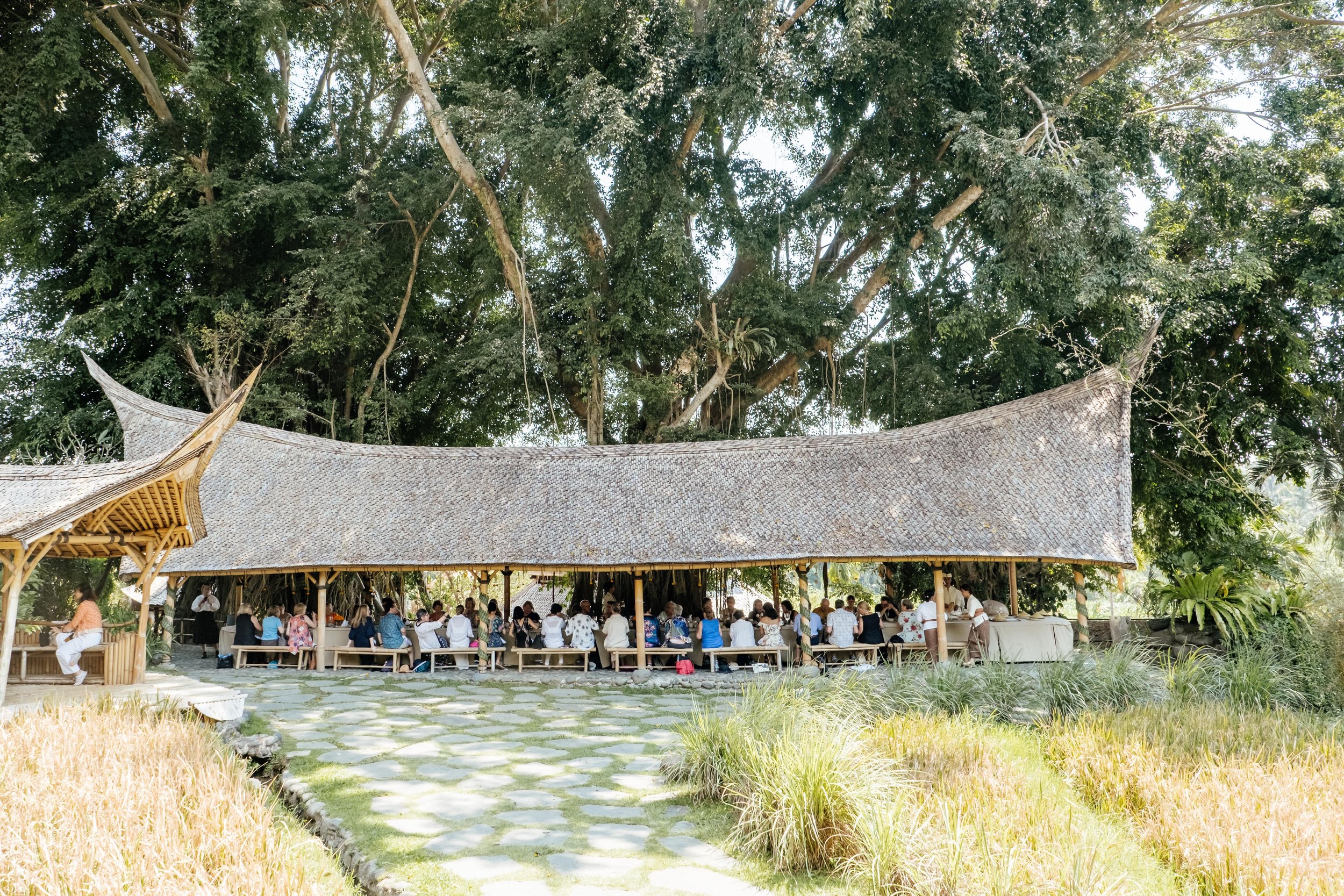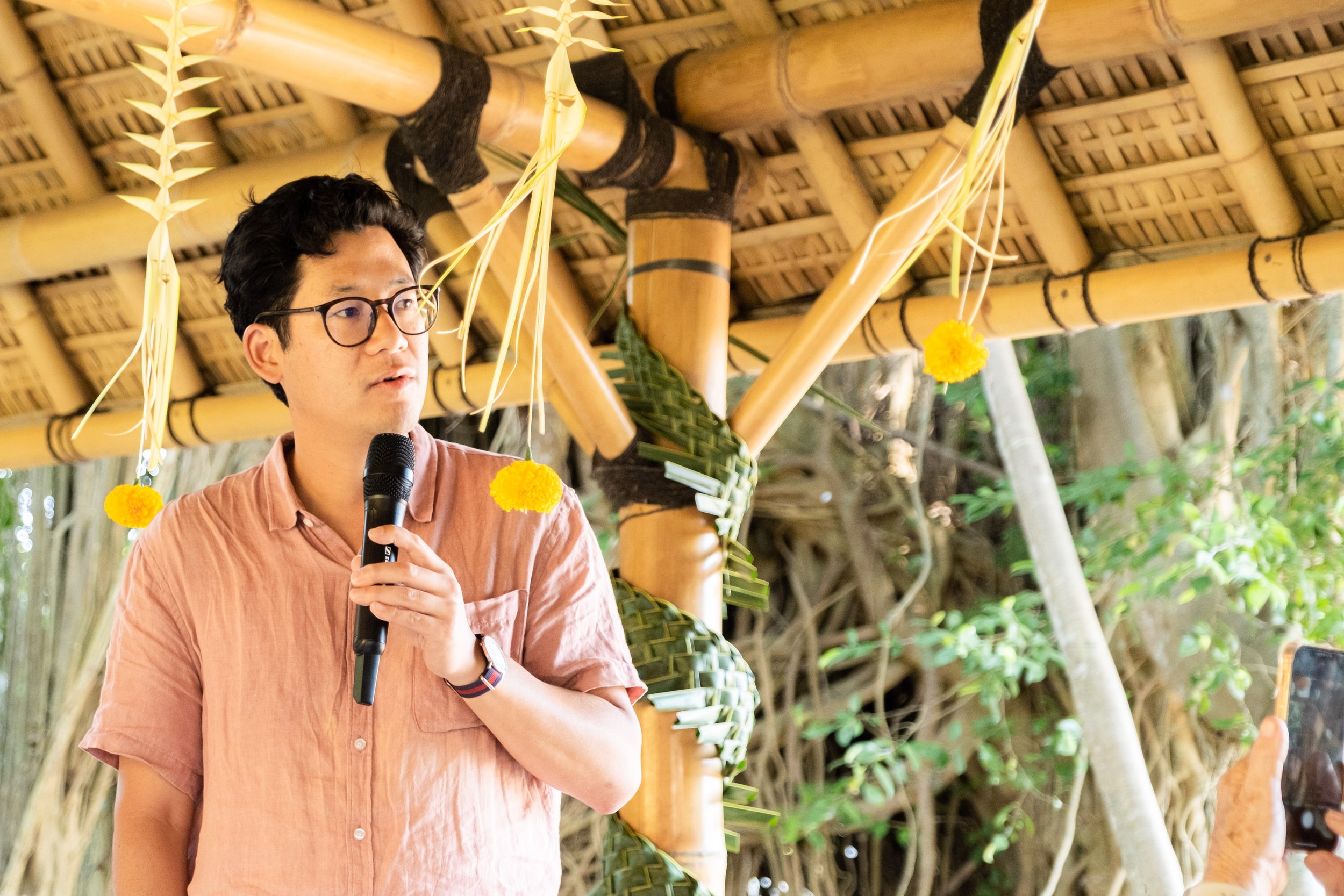LGBTIQ Activism, A Night Of Poetry Slam And the Alluring Scent of Perfume: A Spiritual Journey Through The 20th Ubud Writers And Readers Festival
By Doody Richards
When I arrived in Bali in October 2023, the scent of incense sticks, frangipani flowers, and floral offerings in the multicoloured canang sari were familiar to me. I missed them dearly as they reminded me of the island of gods. Bali is not a stranger to me. Apart from my ancestral connection, the thousand-temple island has been my spiritual home for decades. I was first introduced to Bali as a child, perhaps when I was nine or ten, through family photos of those who travelled to the island in search of long-lost family connections.
Never mind bumper-to-bumper traffic and the scorching heat of Bali’s dry October. I was heading to something more exciting than Bali’s infamous traffic and fierce dry season. I was heading back to Ubud for the 20th Ubud Writers and Readers Festival, dubbed the most significant literary event in Southeast Asia. This year, it felt more like a pilgrimage than just a visit, as I've been going there for the past eight years. So, I was excited to return to UWRF and be enlightened by writers and thinkers from Indonesia, particularly, and all other parts of the world.
With the spectacular backdrop of the Campuhan ridge, the velvet green blanketed the rolling hills—the river stream wound through the bank. I was sitting among media partners from all over the world in Indus restaurant. Ketut Suardhana, the founder of UWRF, greeted the media warmly and expressed his gratitude for their presence. He emphasised the importance of the longstanding relationship he has maintained with many stakeholders involved in the event over time. He hoped that this relationship, which has lasted for 20 years, would help improve the nation's literacy rate.
During his talk, he spoke with an inspiring, warm, fatherly voice. He enlightened us about the theme for UWRF 2023. Tri Semanya–Atita, Wartamana, Anagata – represents the past, present, and future as the metaphysical journey. He explained that by using our logic and rationality, we can learn from the past and implement those lessons in the present. However, we also have a responsibility to continue the legacy of our ancestors for future generations. We can also learn from the past to build harmonious relationships and pursue happiness. We distinguish between good and evil and strive to destroy the bad in our lives. According to him, it is based on our faith that actions will determine our karma. Most importantly, Tri Semaya emphasised the importance of building harmonious relationships to achieve this goal.
With the continuing war in Gaza and Ukraine now, a harmonious relationship is what the world needs now. Wars never defend humanity but torment the lives of minorities. Dangerous ideologies that provoke hatred are on the rise. Andreas Harsono, a prominent human rights advocate and author, has expressed concern over the recurring violence against women, religious minorities, and LGBTIQ individuals in Indonesia. He pointed out that in the past, transgender individuals, known locally as Waria, had their TV shows broadcast on several channels. Still, now those performances are no longer allowed on Indonesian television.
Indonesian LGBTIQ Activism
An Indonesian LGBTIQ activist and writer came to the stage to speak about their identities, movement and literature works. At a recent event, Virginia Halzainky, the co-founder of Unspoken Bali poetry slam and an activist, talked about growing up in a Muslim family and her current project that aims to help young LGBTIQ individuals in Indonesia feel less isolated by providing them with a shelter and platform.
When I asked what motivated her to start the club, she humbly replied that it all began with the feeling of not being alone. Initially, she wanted to connect with others who shared the same problems. From there, the meetings became more regular.
So, she continued, it started with her humble intention of providing a space to hang out and build a sense of belonging for LGBTIQ individuals. It was not only as individuals but also as a community. She said the room is a platform for discussing personal matters and current social issues.
The club opens up a conversation for every member about their challenges in navigating life. Although it can be challenging to gather 40 to 50 people at times, she admitted that it has been a life-changing journey. She doesn't consider herself an activist but a mediator between her community and others. Additionally, the club works towards decriminalising the LGBTIQ community.
Growing up in a Muslim family can be very challenging, especially for those who identify as queer. The fear of not being accepted by even your closest friends can lead to loneliness and isolation. She finds solace in reading and watching LGBTIQ content online but admits that coming to terms with her queer identity is still an ongoing process. She is aware that her Muslimness and queer identity may seem opposite but believe it is possible to be both. Though she is sandwiched between the two layers of queerness and being a female Muslim, she knows that accepting her true self, as both Muslim and gay, is an integral part of the journey.
An author from North Sumatra, Indonesia, a proud gay Toba Batak ethnicity, Norman Erikson Pasaribu, spoke about his LGBTIQ identity, poetry, and growing up as a gay man in North Sumatra. He is known as a poet writing in Indonesian. His poetry collection Sergius Mencari Bacchus won the first prize in the Jakarta Arts Council’s Poetry Manuscript Competition in 2015. His collection of short stories, Happy Stories, Mostly (translated by Tiffany Tsao), won the UK’s Republic of Consciousness Prize and was longlisted for the International Booker Prize in 2022.
Unlike Virginia, Norman seems to enjoy being in the spotlight. He finds it exciting that people want to get to know him better and celebrate his work, such as during the UWRF event. However, he also enjoys being invisible at times. His poetry collection, which won the first prize at the Jakarta Arts Council, was born out of anger and tears. These emotions were a remedy that inspired him to write poetry.
We, gay men, have been demonised all the time. So, as a child and teenager, he grew up with such religious condemnation. When he found writing as an expressive form, he suddenly found a way to be acknowledged, seen and celebrated. Particularly in poetry writing, poetry is an instant, effective way to respond to daily homophobic attacks. He said we’ve been experiencing daily homophobic attacks, such as being called the cause of the apocalypse and many other nasty names. Through poetry, somehow, he finds his voice to channel his anger and frustration and to let everyone know what it feels like living as an LGBTIQ minority amid religious condemnation.
In my attempt to secure an interview with him–I failed–Norman appeared overwhelmed by the attention he received from the enthusiastic audience and media, including myself, who were trying to approach him. When I asked him about the acceptance of LGBTIQ literature in Indonesia, he said it was not his role to validate the matter. He emphasised that it was up to the Indonesian readers to decide how they would accept it.
A Night Of Poetry Slam
Who would think a mix of flowing cocktail night and poetry slam could go well in the intimate, obscure, boutique cocktail bar Kawi’s ambience? The poetry night event entitled ‘Writers Speak, Cocktails Flow, Stories Glow’ promised a special after-hours reading event at KAWI UBUD, a trendy bar in the village. The Kawi bar, meaning 'Poet' in Sanskrit, served locally sourced highballs and cocktails exclusively for the Festival. The event featured stories and poetry from talented young Indonesian writers.
As I entered Kawi, I found myself hesitating. Was this the place for a poetry slam night? The tiny space seemed too limited for such an event. But then I remembered why I love UWRF so much–there's no set establishment here. Despite the limited infrastructure, facilities and resources, Ubudians have become incredibly creative in making things work. It makes UWRF so magical - the ability to improvise and create something unique out of very little.
Though the space was tiny and it started very later than scheduled, I enjoyed the poetry slam night hosted by the talented poet himself, Bagus Ari Saputra, and with slamming words of poetry by passionate young Indonesian poets such as Eko Saputra, Ebe S. Palogai, Rain Chudori, Nuril Basri, and Elgandia Astrilia.
Eko Saputra recited his poetry accompanied by heart-wrenching music, which brought back his childhood memories of adoring the smell of his mother's cooking. That night, Bagus emphasised the power of the Indonesian language in poetry. According to him, Bahasa Indonesia has been misunderstood by many as an easy language to learn. He stressed the language's importance for emerging young Indonesian poets.
As the night descended upon Ubud village, and the candles flickered to half-burned, young Indonesian poets from various provinces showcased their sharp wit and unapologetic attitudes while sharing a common passion for their true tradition and identity. Their fiery spirit was reminiscent of stepping into a ring of fire, yet they remained forgiving of the past and hopeful for a bright future. Witnessing these inspiring and aspiring young poets was indeed an exceptional experience, worthy of the spotlight that the event provided.
The night, indeed, was a seductive experience of language and liquid ingenuity at the village hideaway, the Kawi Cocktail Bar.
The Alluring Scent Of Perfume
I, like many others, had never heard of Tanaïs, an author and independent perfumer, until UWRF 2023. Tanaïs is an accomplished American writer of fiction and a perfumer with exceptional talent. Her notable works include "In Sensorium" and the highly acclaimed novel "Bright Lines", which was a finalist for prestigious awards such as the Center for Fiction First Novel Prize, the Edmund White Debut Fiction Award, and the Brooklyn Eagles Literary Prize. Tanaïs has been honoured with residencies at renowned institutions like MacDowell, Tin House, and Djerassi. Apart from her writing, she is an independent perfumer who runs TANAÏS, a fragrance, beauty, and design studio in New York City.
She shared her memoir with the audience at Taman Baca, a bamboo-structured open-air theatre. It was about the history of colonialism, and it offered a critical and alternative view of South Asian culture and power dynamics. The project called ‘Sensorium: Notes for My People’ maps scents to personal and shared histories from her embodied experience as an American Bangladeshi Muslim femme. On another occasion, they spoke of how perfume helped them to bring back memories of the terrible past but also gave them strength to forgive and move on from the past. Her voice was calm and soothing, and I felt like she represented the scent of her created perfume herself. She began to unpack the traumatic events of colonisation. Perfume, according to them, is a way to reclaim our bodies from the damage of colonisation. The scent of perfume has the strength to access personal and ancestral memories and a way to remember trauma and heal it. When it all had happened, only memories of scent remained.
Indeed, as the scent of perfume filled up the air, the audience was captivated by her. We were under her spell.
I was lucky enough to ask her one burning question about perfume. I wonder why perfume in the West is defined by sex. Whether you’re female or male, you can only pick which gender you are. But, in the traditional sense, perfume seems to disobey the concept of gender, or one way or another, ethnic perfumes are gender fluid. Just like her perfume, her voice was alluring. She said it is because, in the Western context, there has been a desire to create a sense of individuality based on the colonial market power of gender. In a sense, it’s just for you (male or female) and how perfumes have been used to attract the opposite sex. However, perfumes, in a traditional sense, don't believe in the division of gender.
What I’ve learned From UWRF 2023
The 20th Ubud Writers and Readers Festival was a magical event that featured some of the best literary works and intellectuals from Indonesia and other parts of the world. The festival theme, Tri Semanya – Atita, Wartamana, Anagata, highlighted the significance of fostering healthy relationships and seeking happiness by learning from the past and applying those lessons in the present.
The festival also shone a light on the challenges faced by the LGBTIQ community in Indonesia and the importance of acceptance and decriminalisation. The festival's poetry slam event was a delightful experience showcasing the talent of young Indonesian writers. Despite Indonesia's unpredictable religious and political climate, UWRF is undoubtedly one of the most notable literary events in the world.
Ubud has successfully established itself as an international literary hub to celebrate literature, culture, and diversity. UWRF and Ubud are, respectively, must-visit events and destinations for literary enthusiasts from all corners of the globe.
